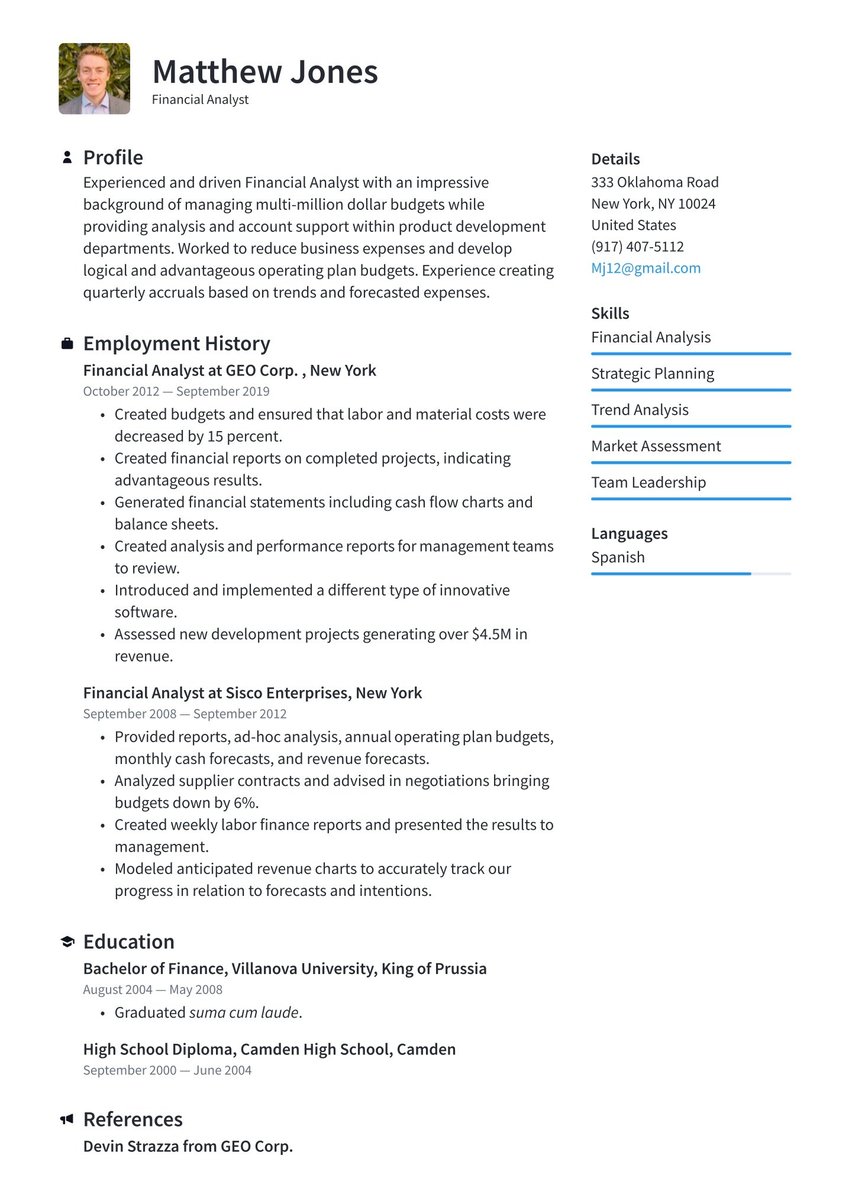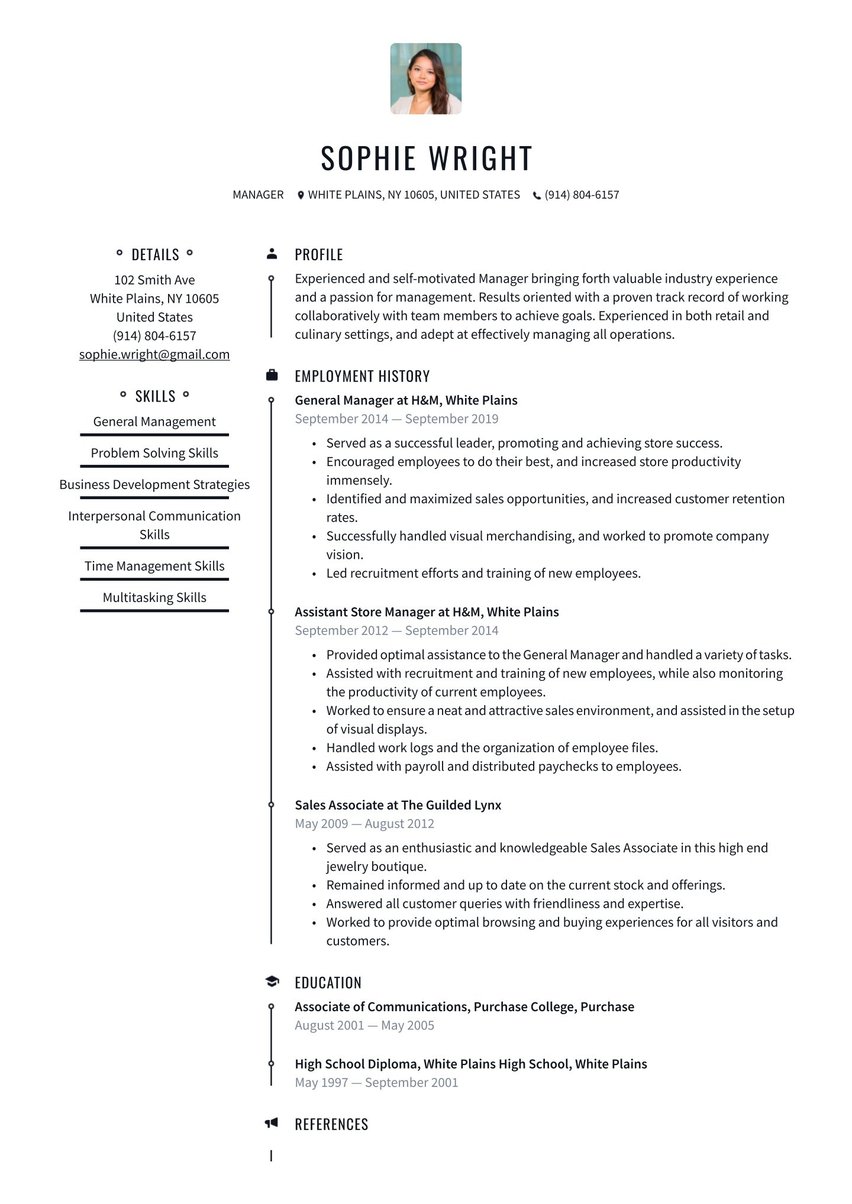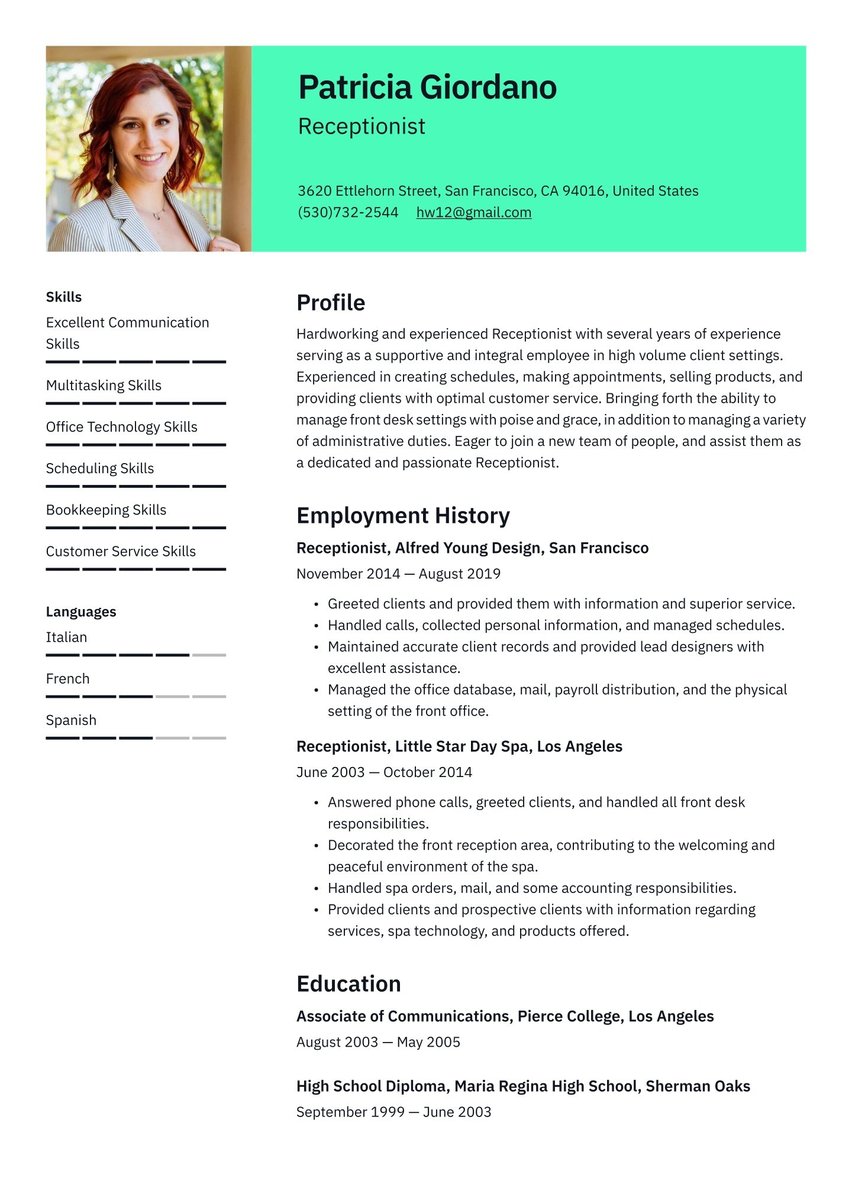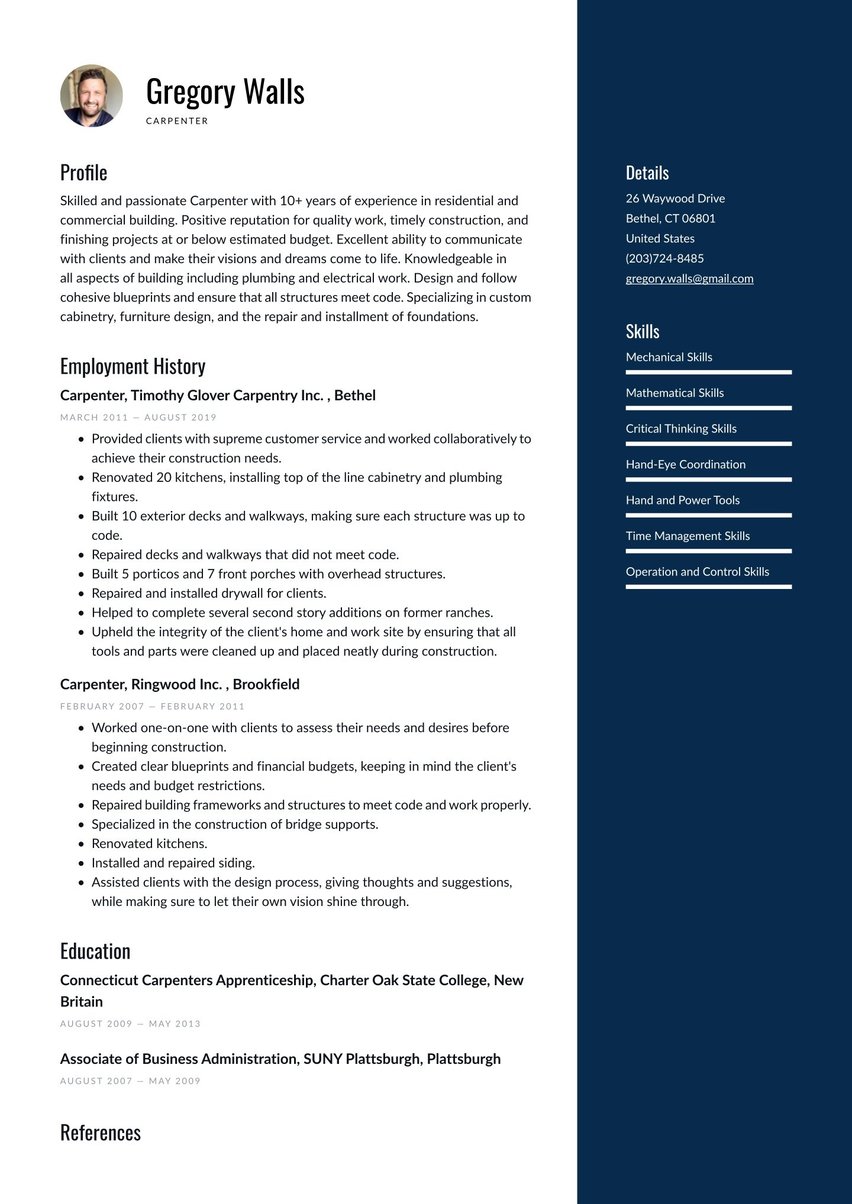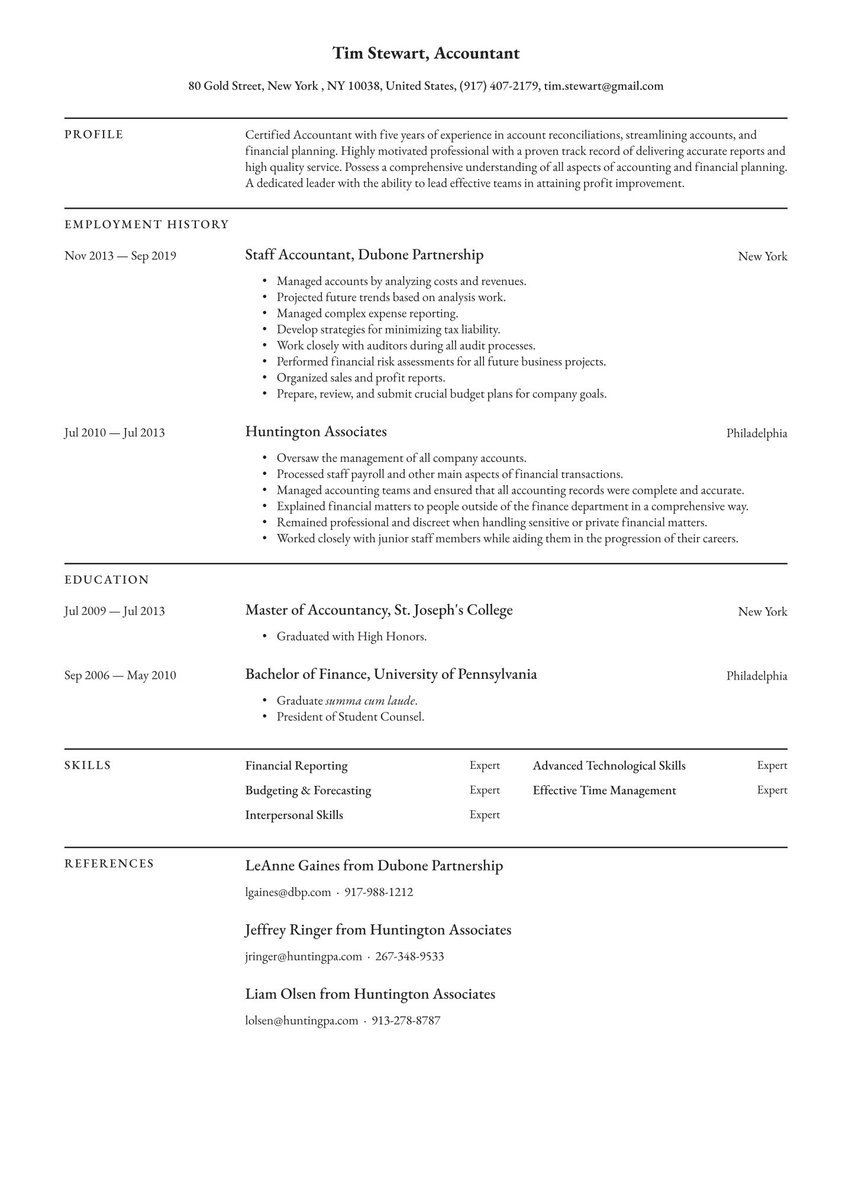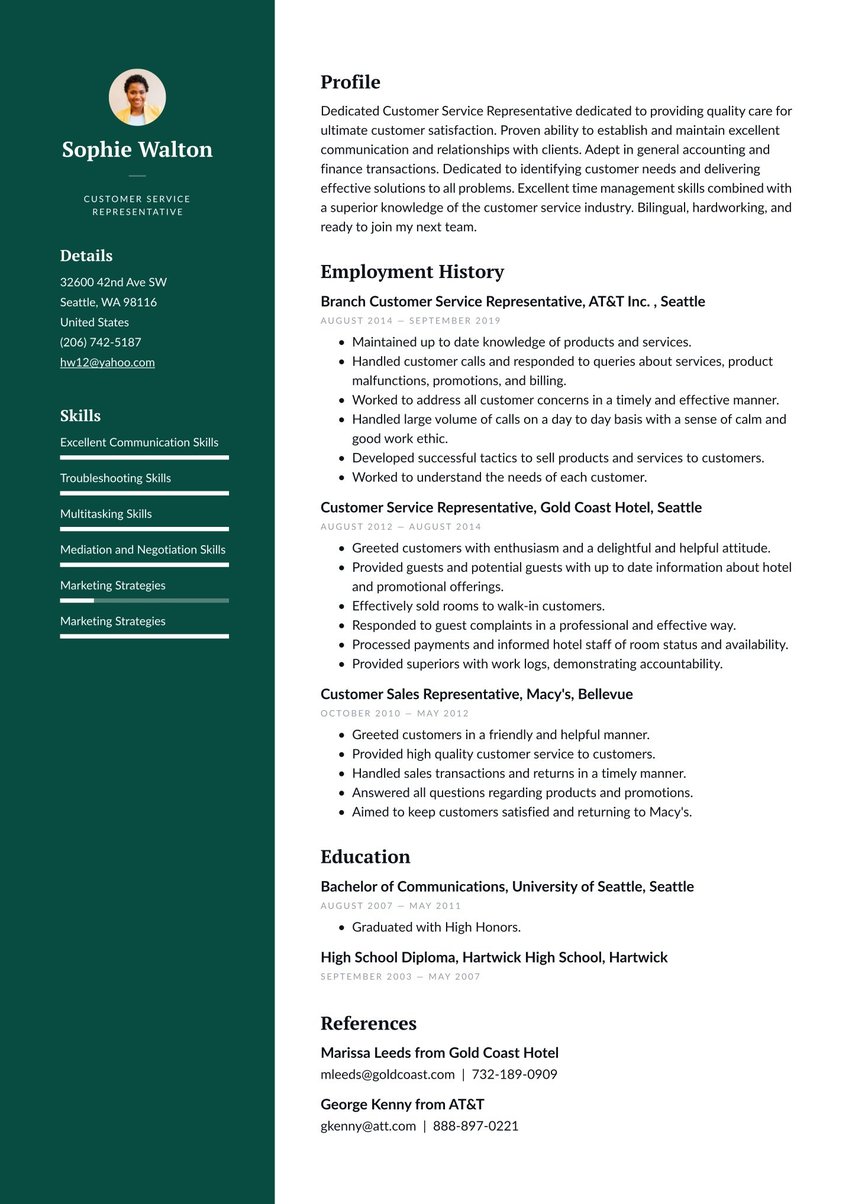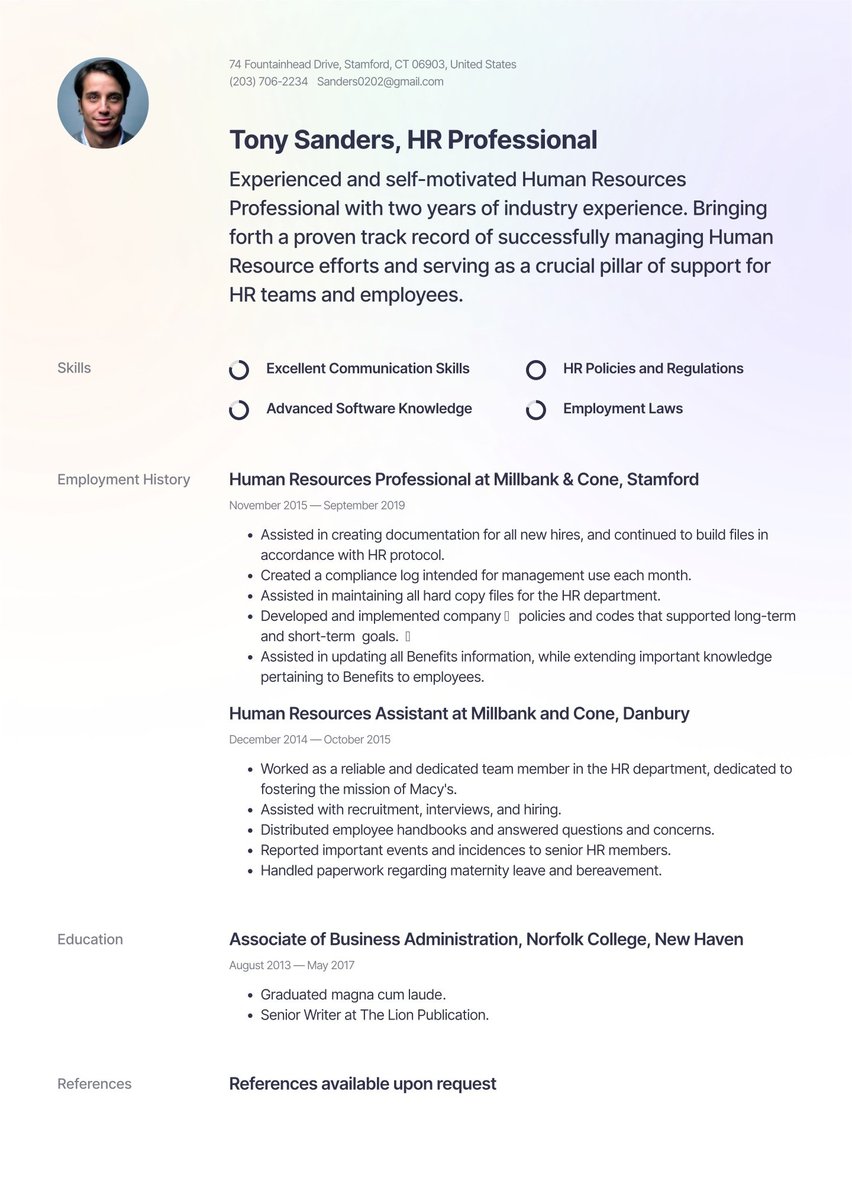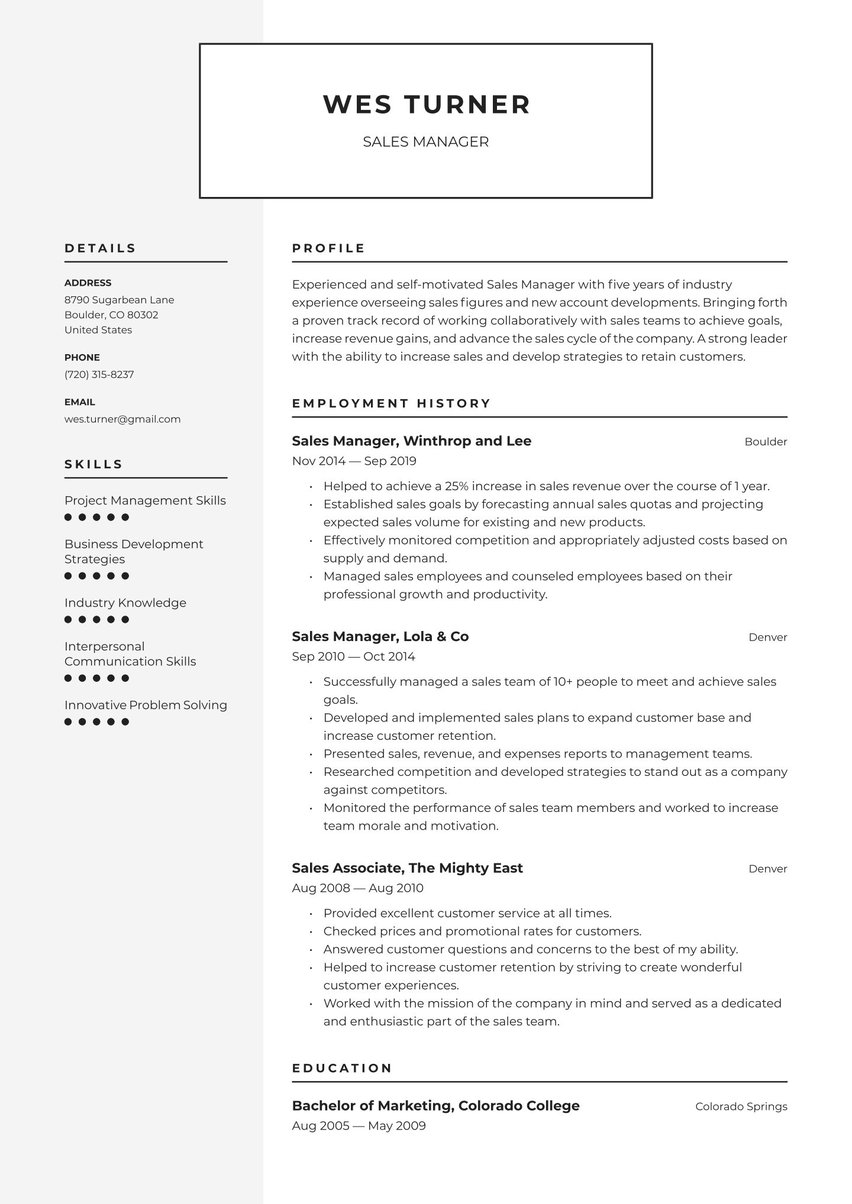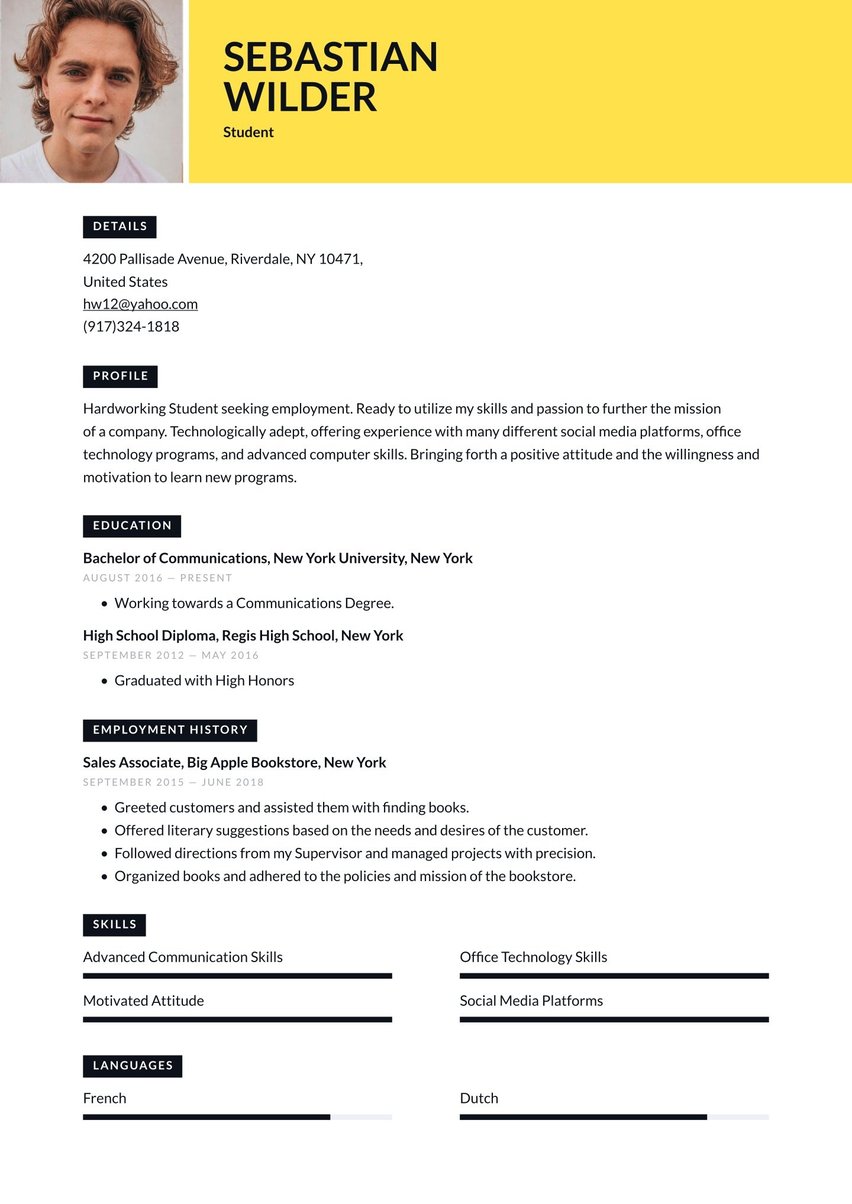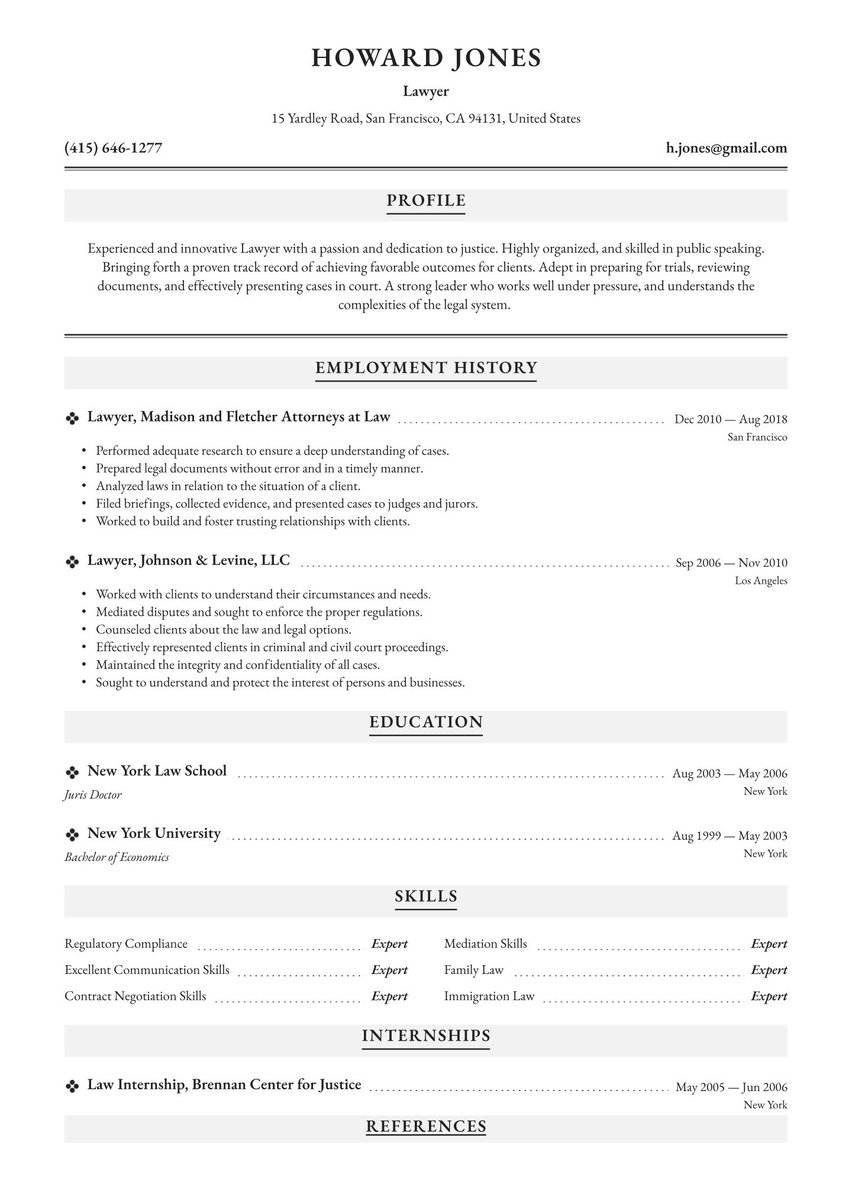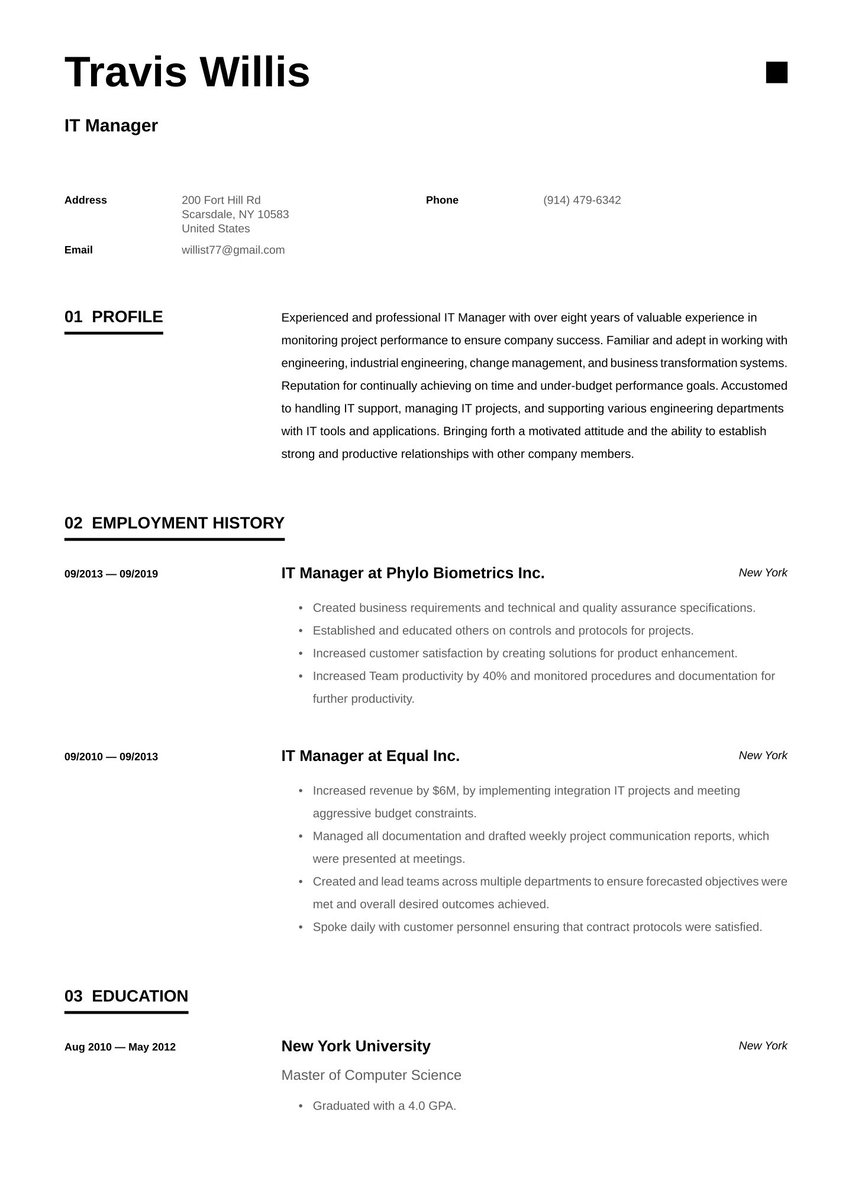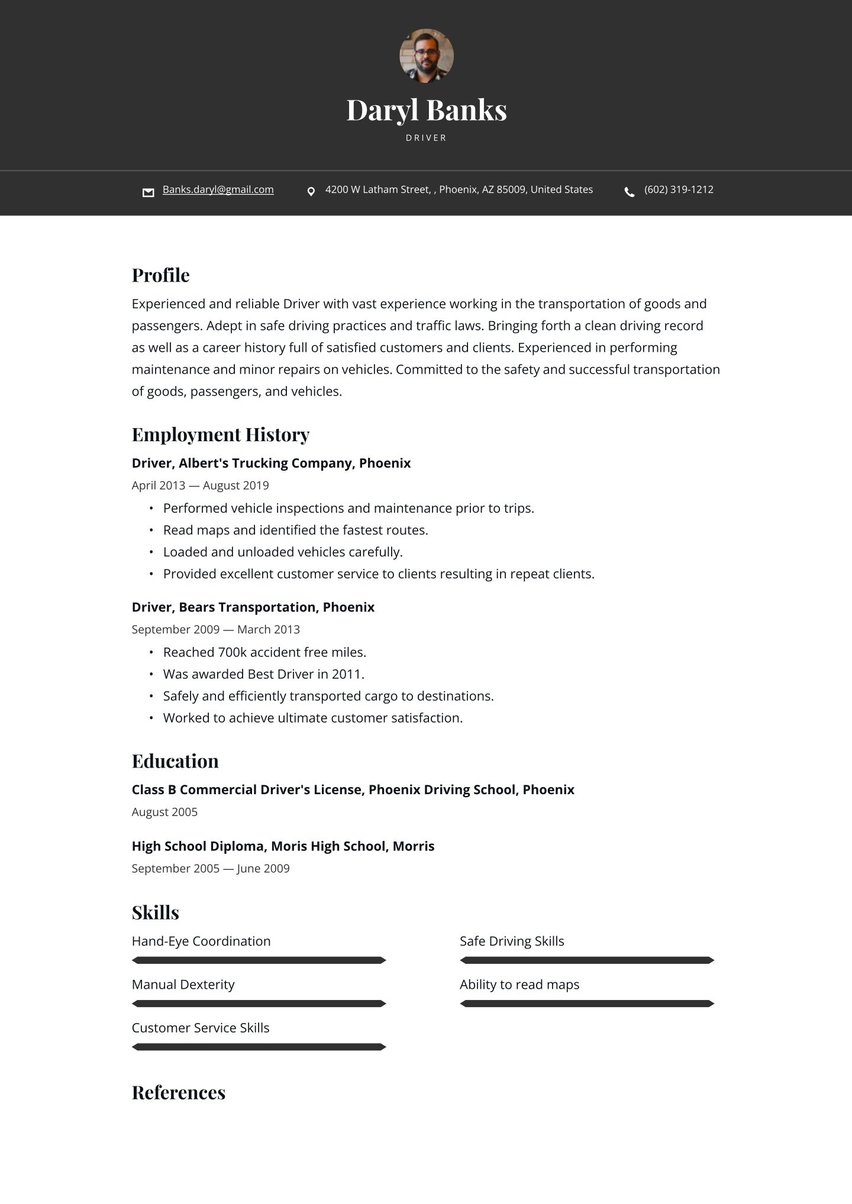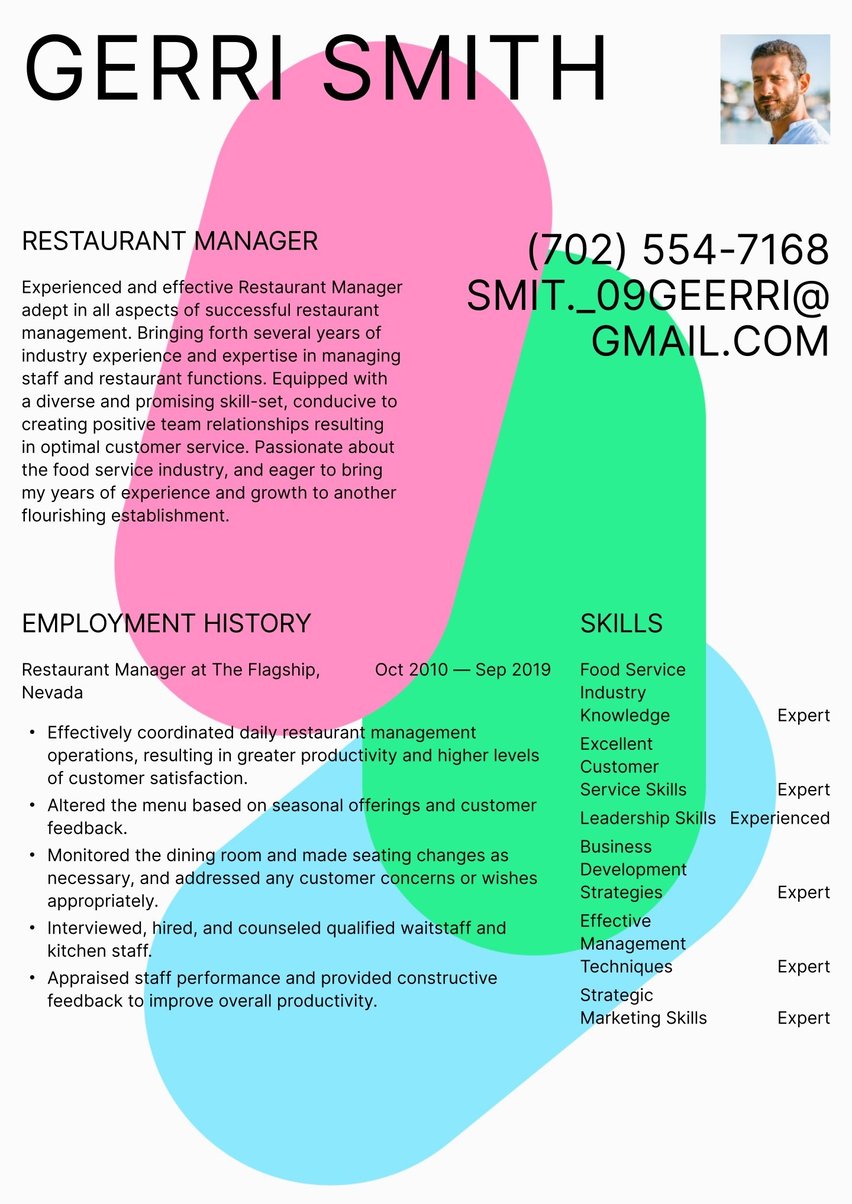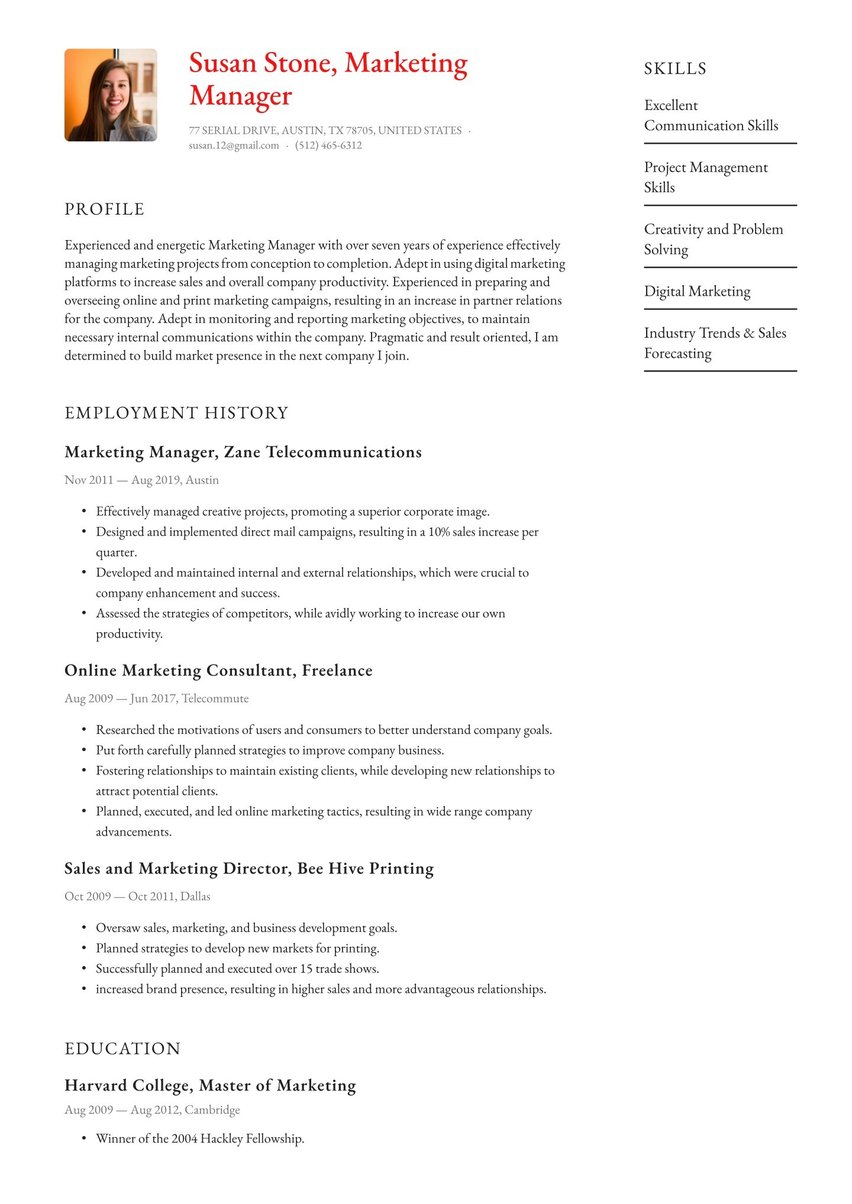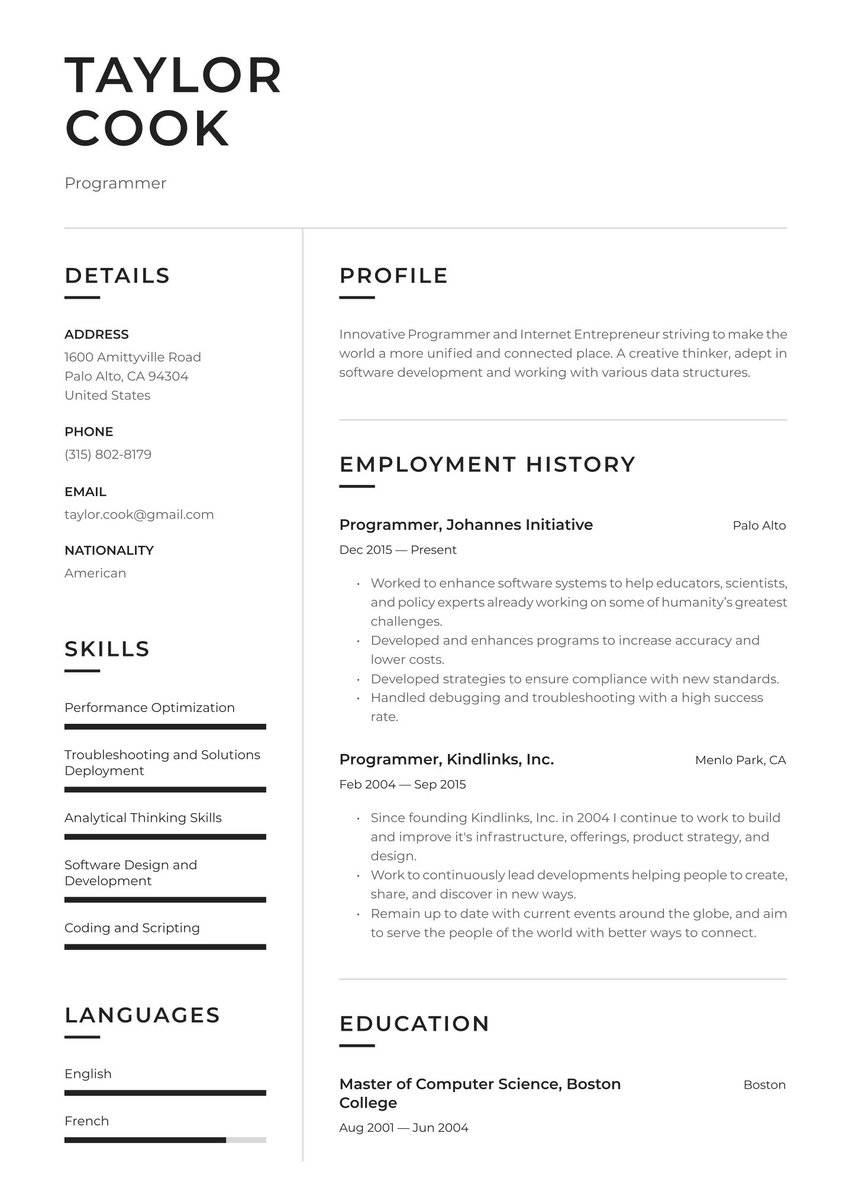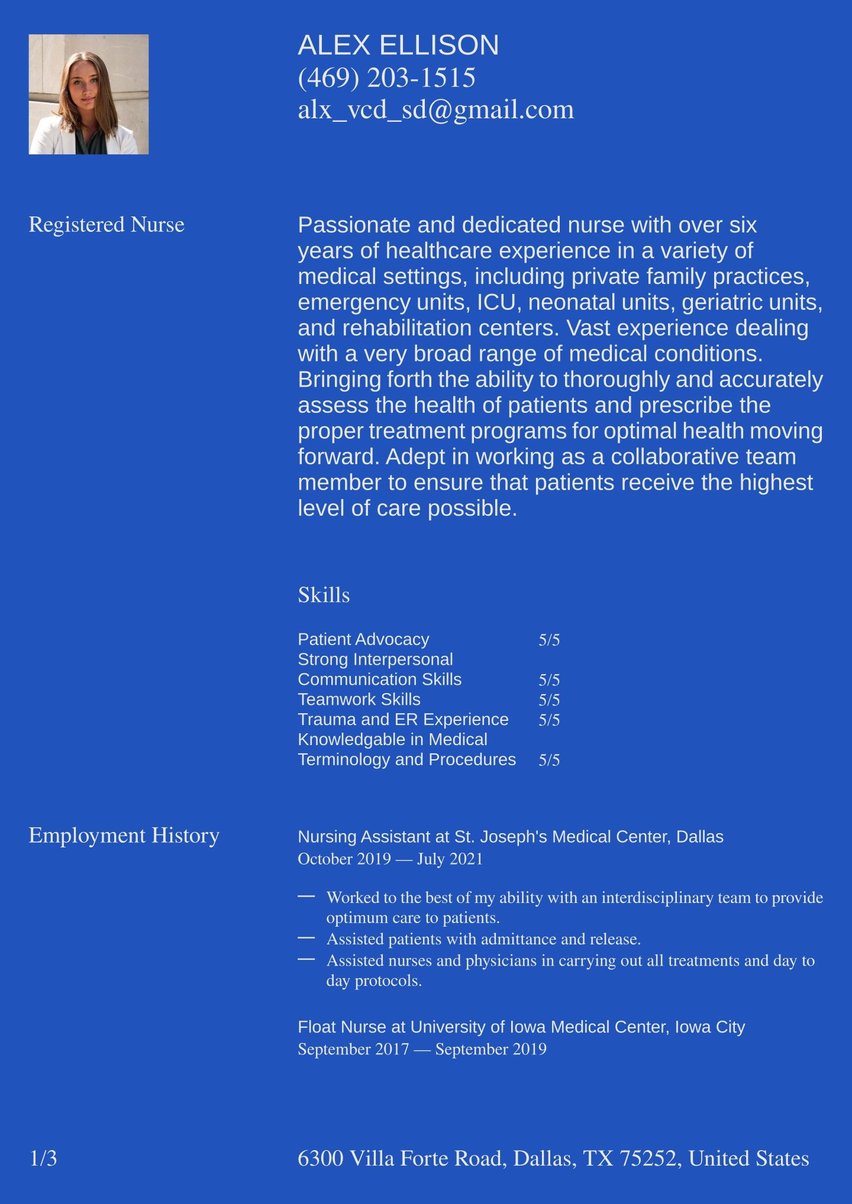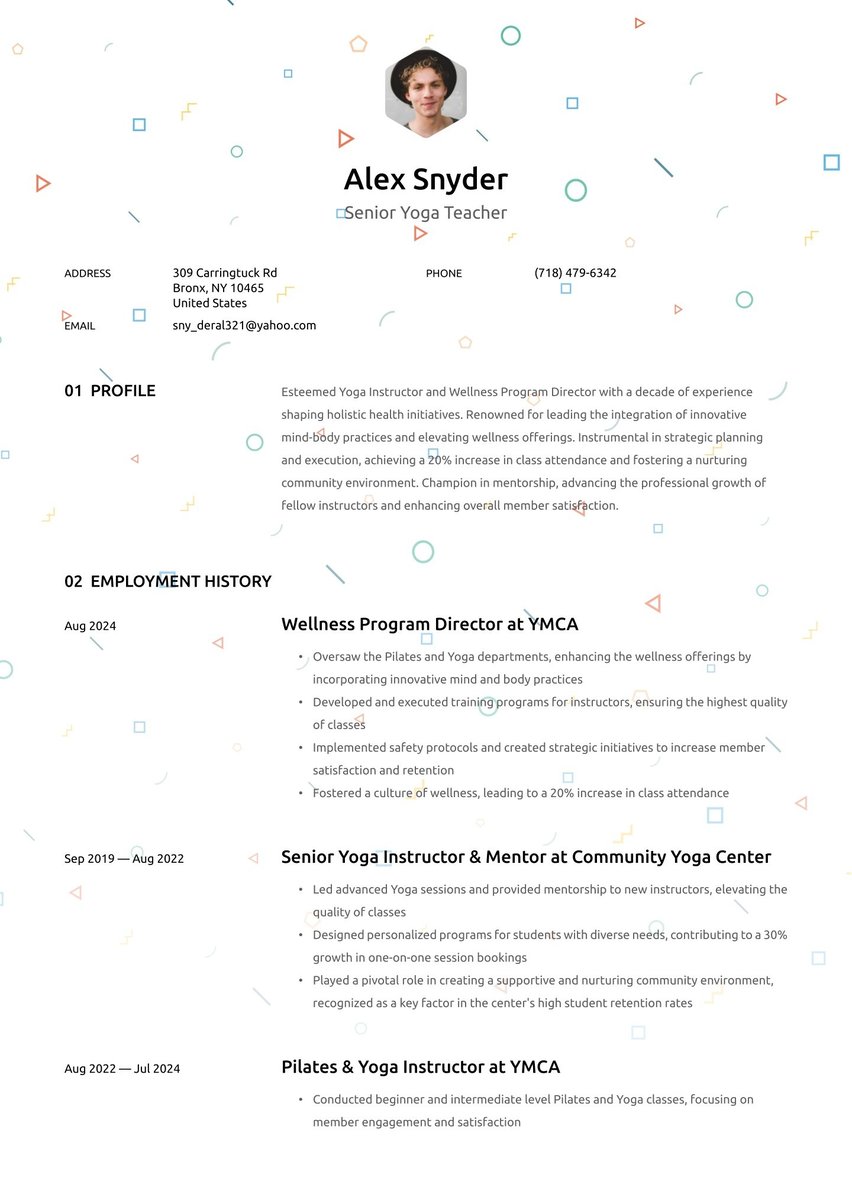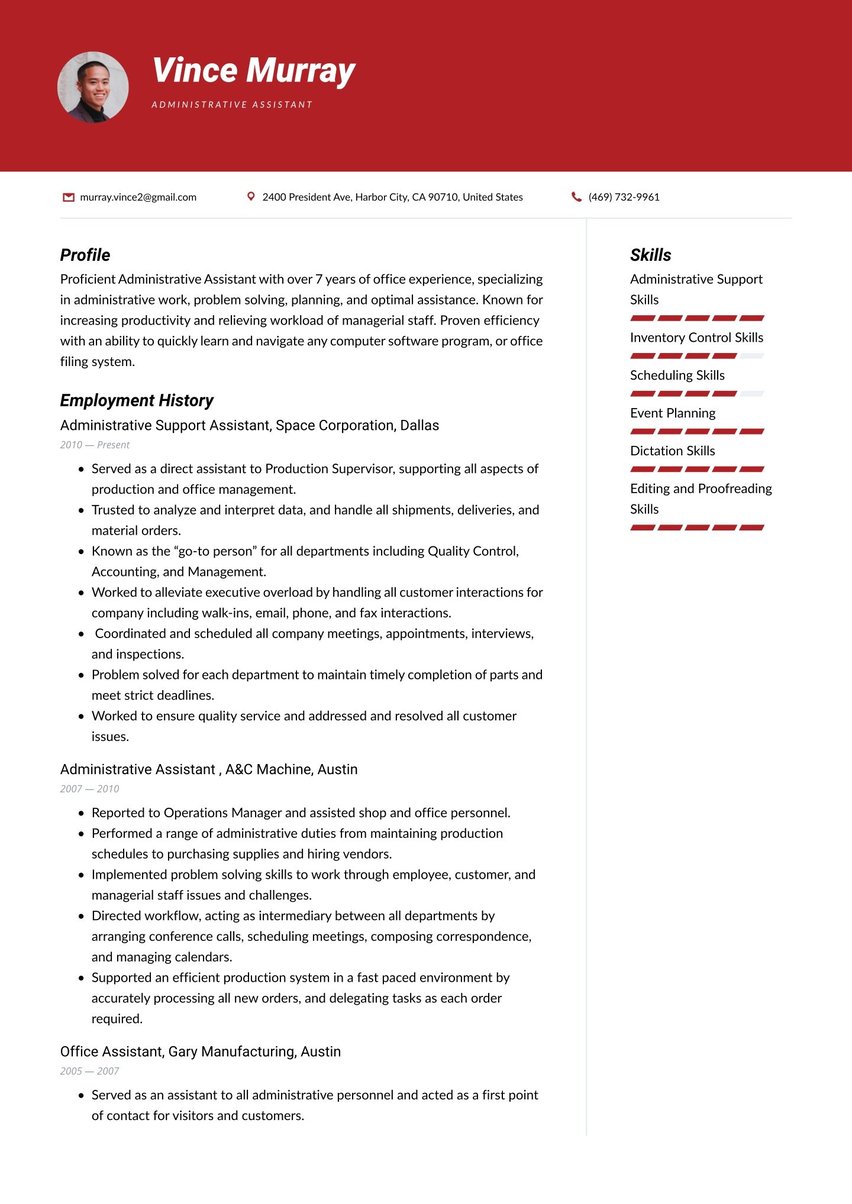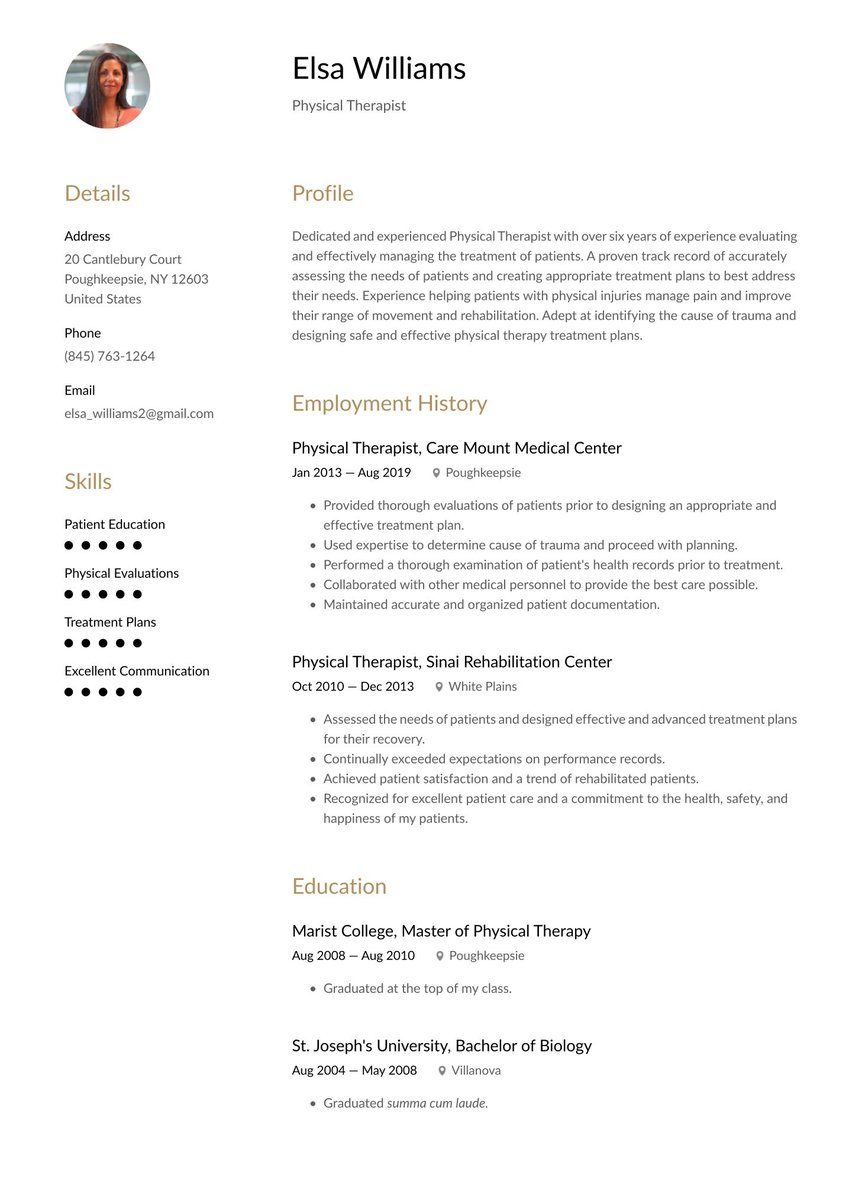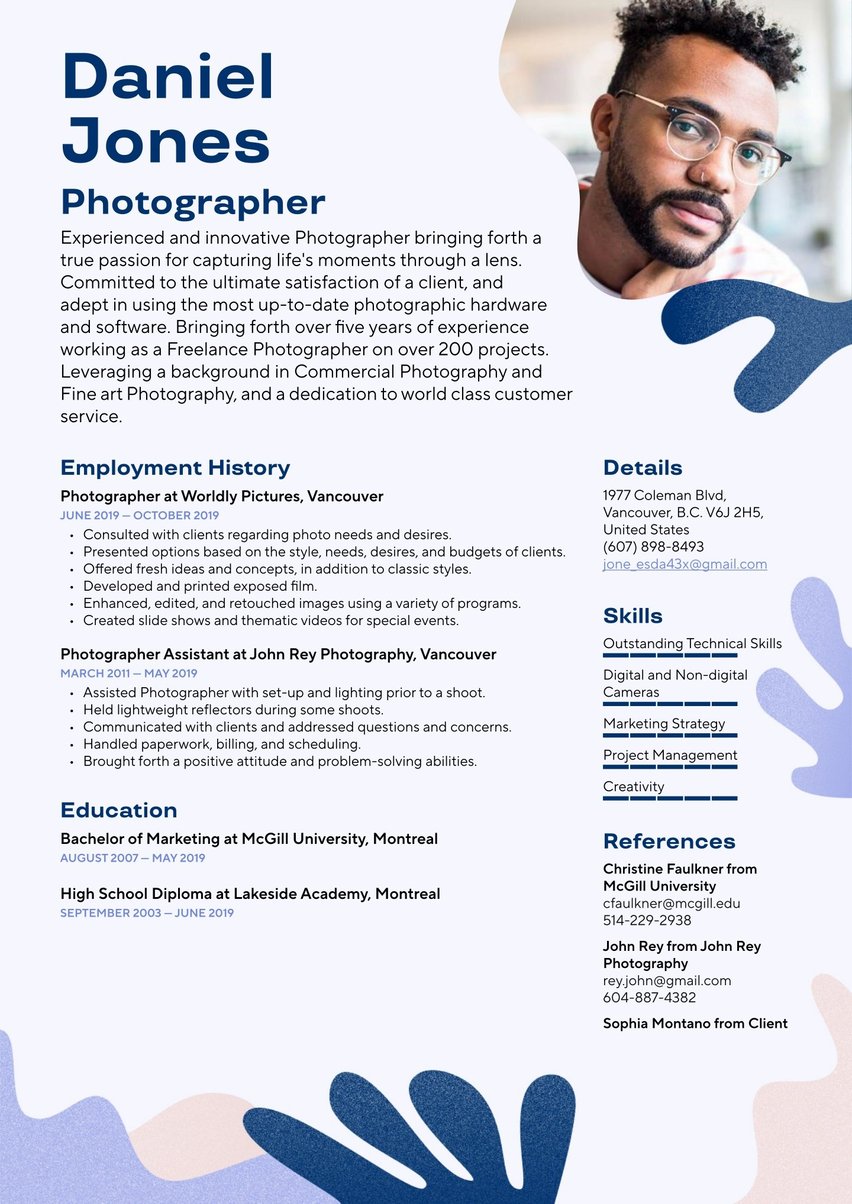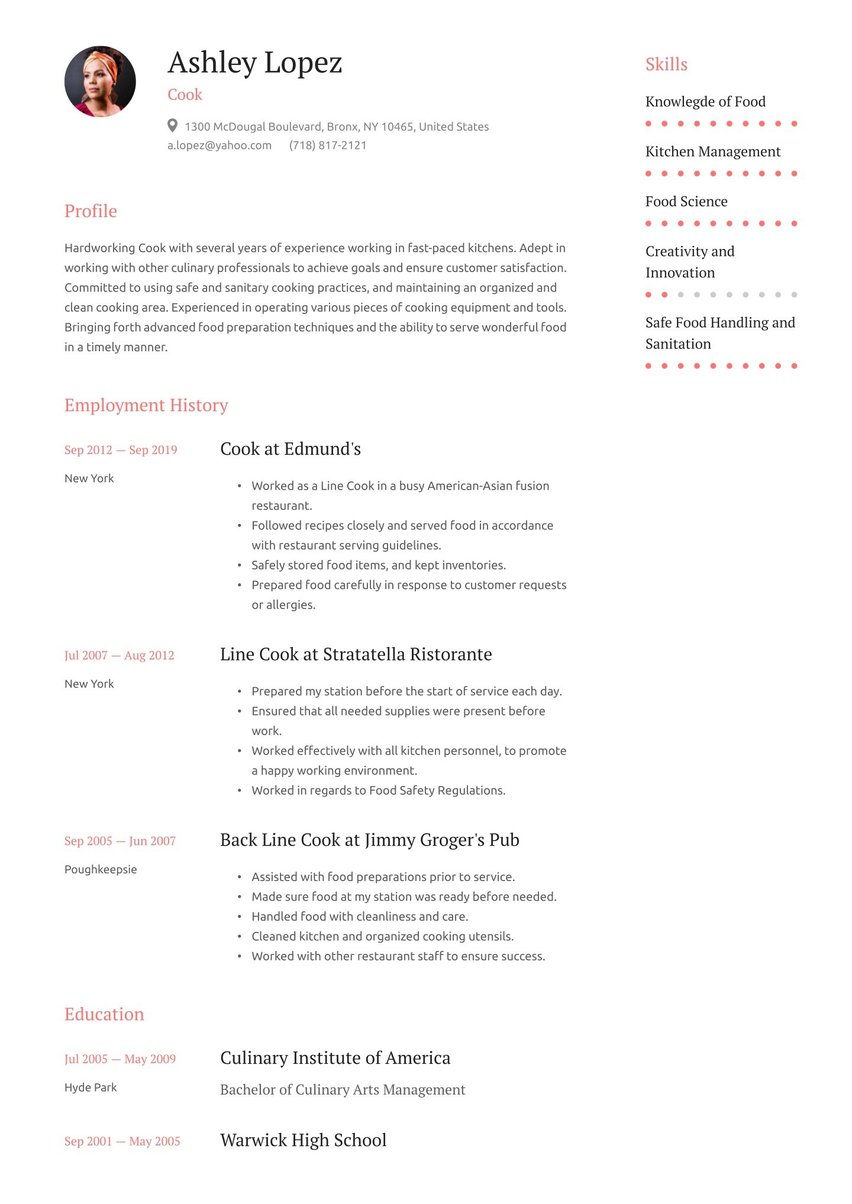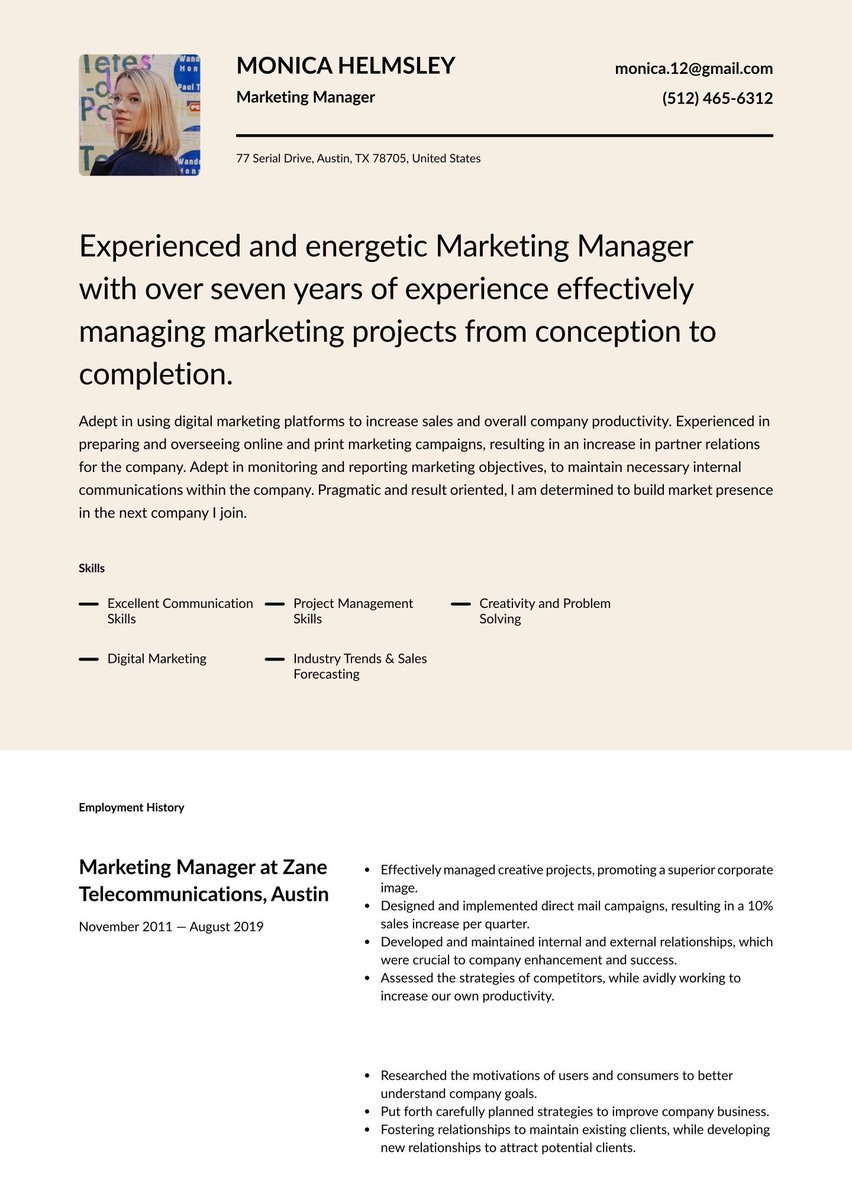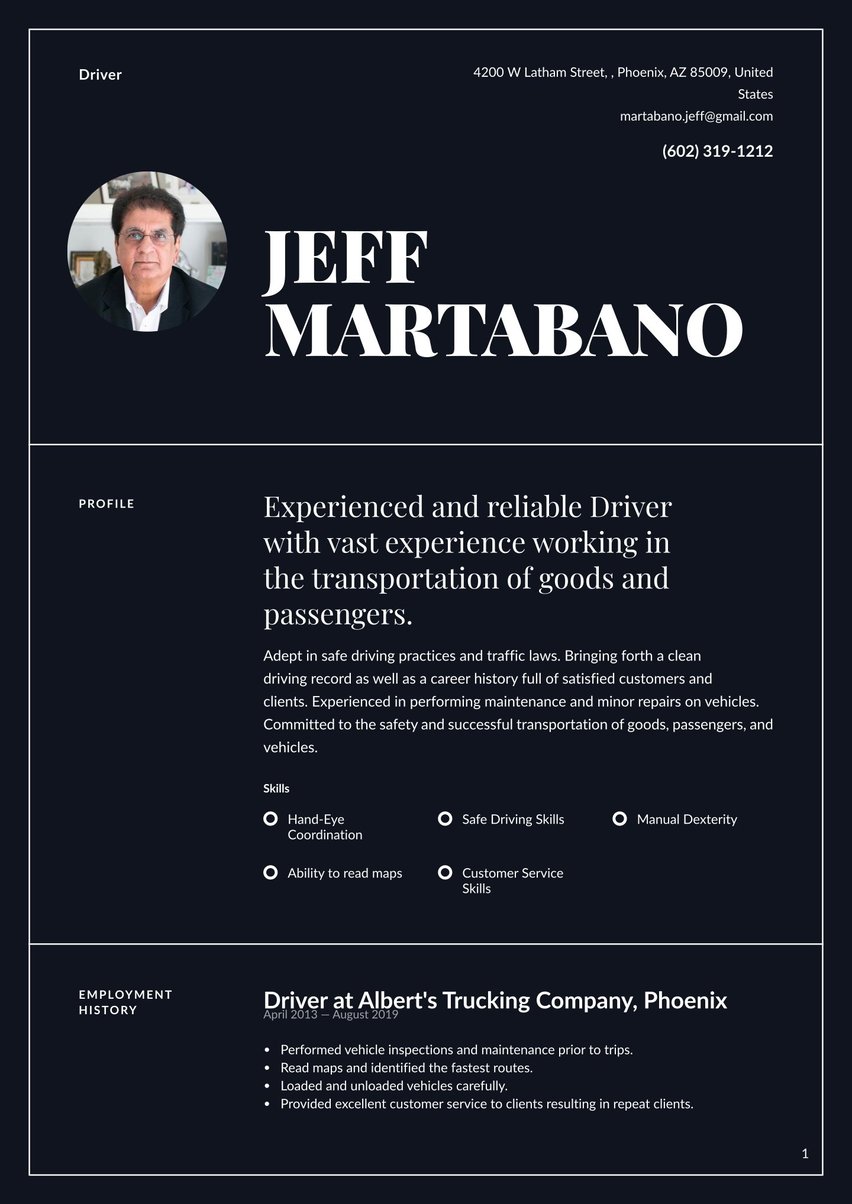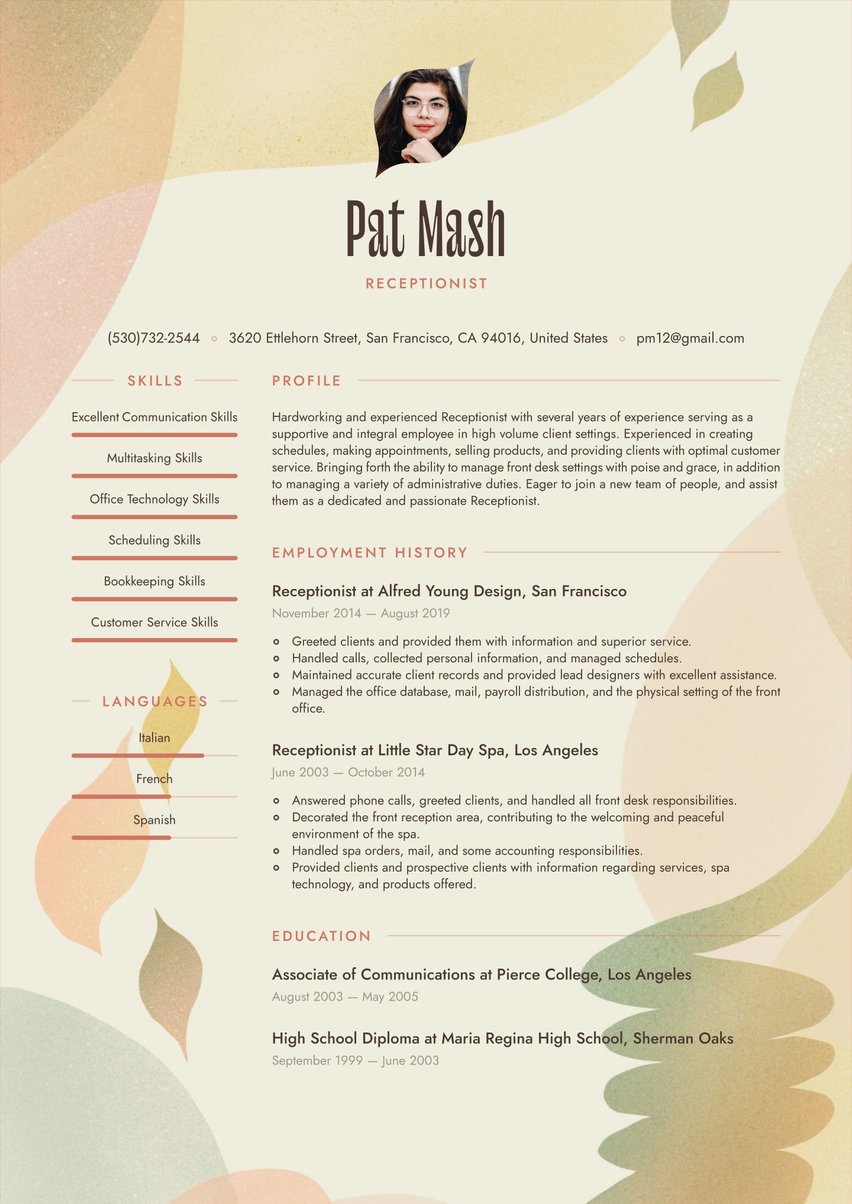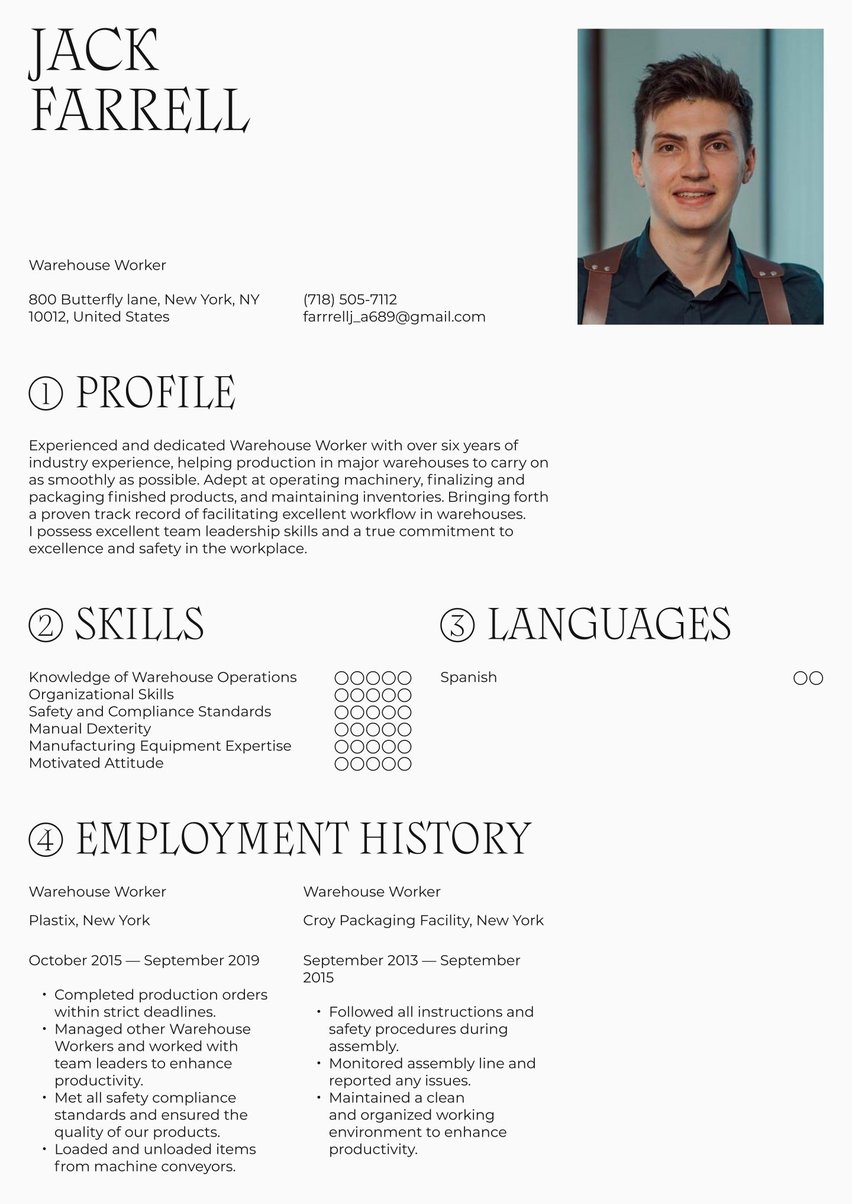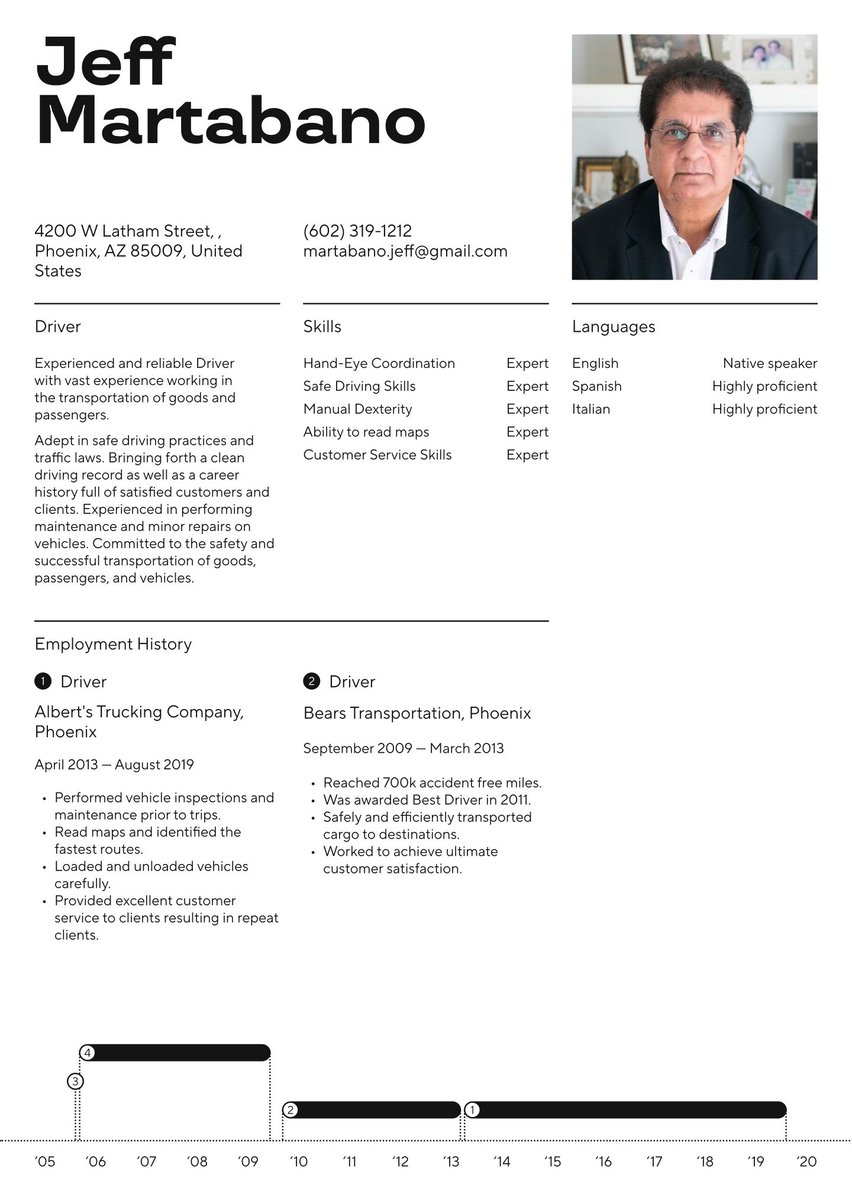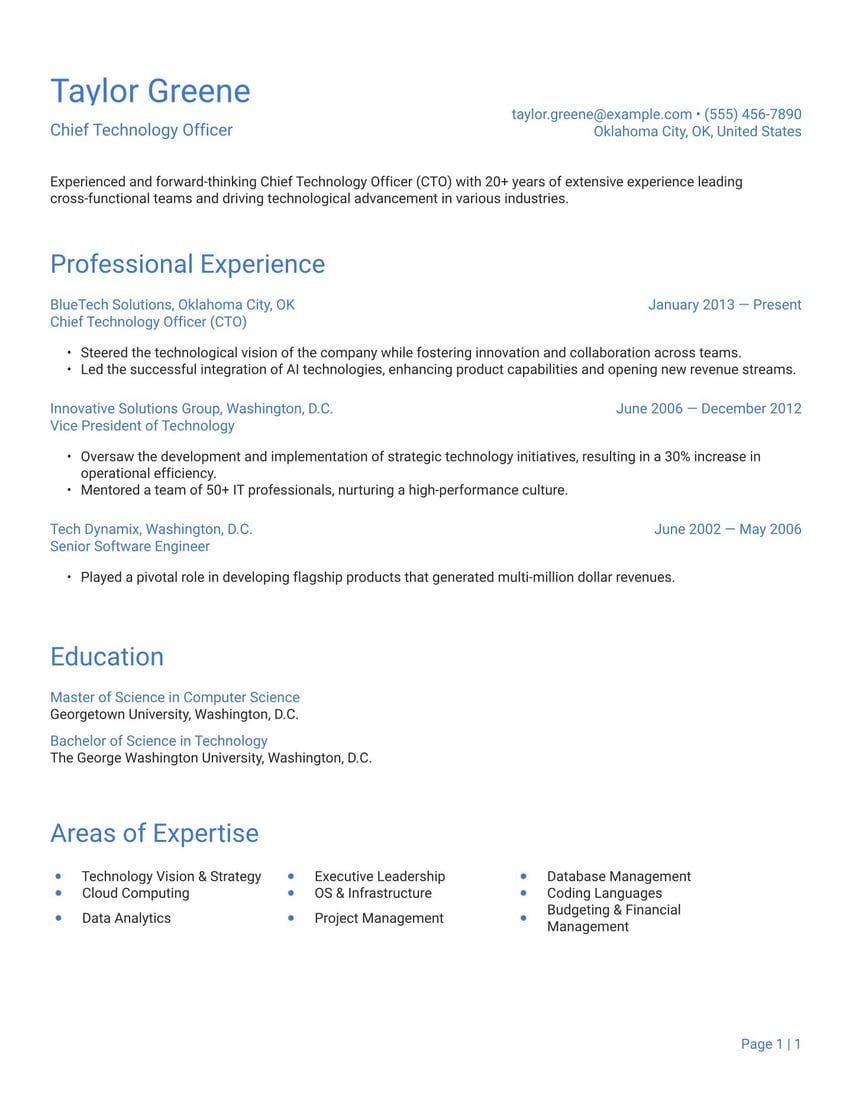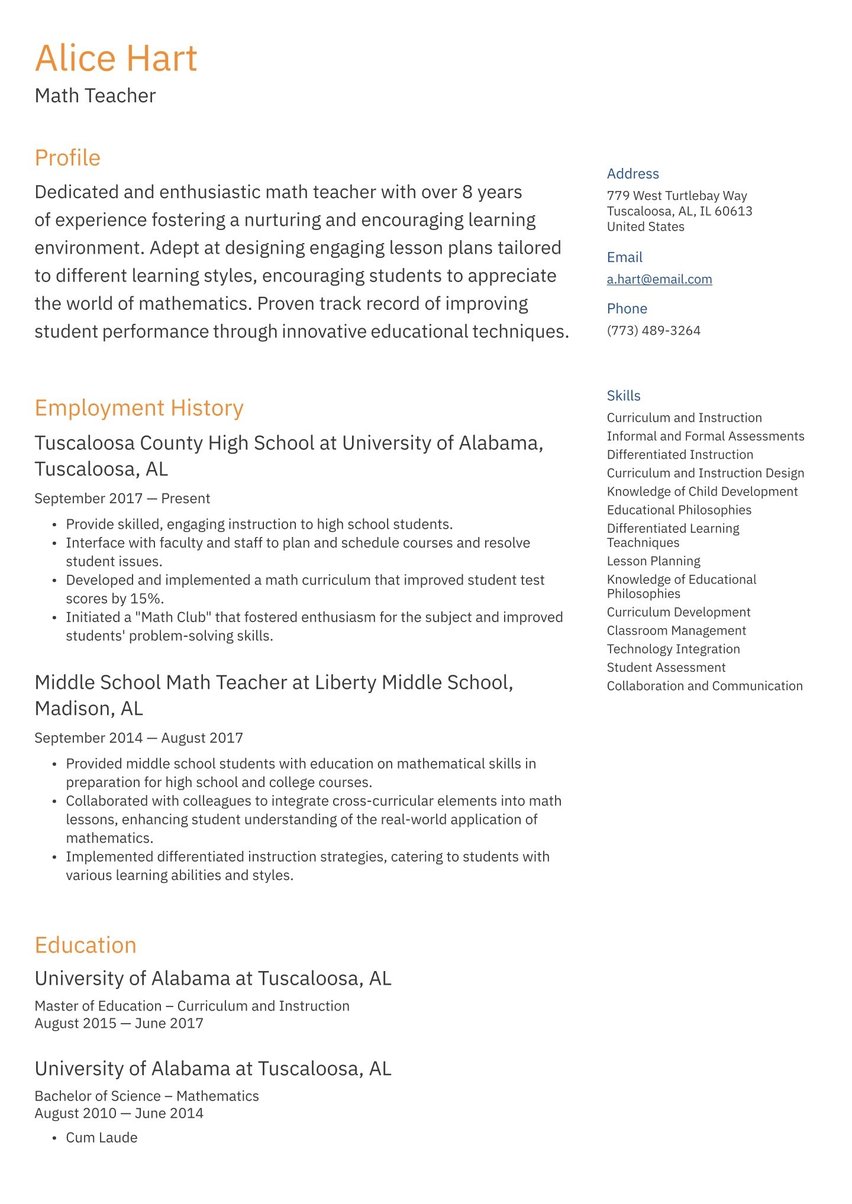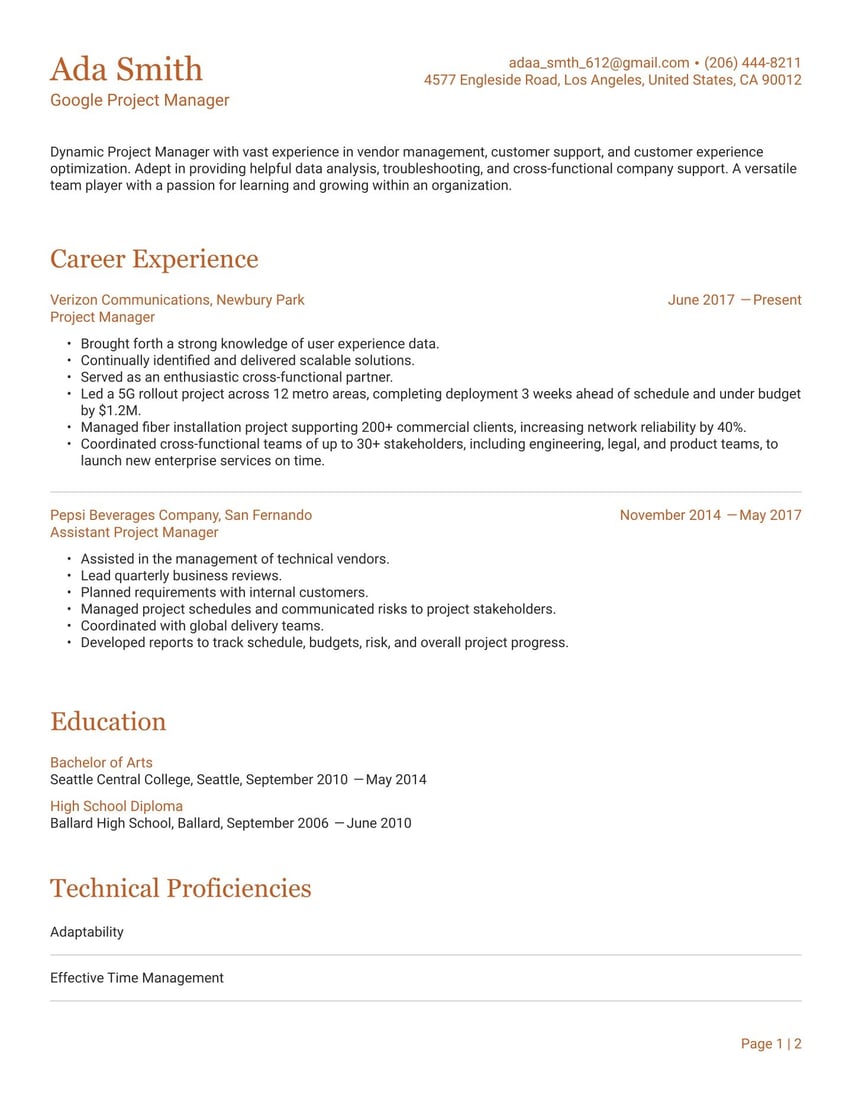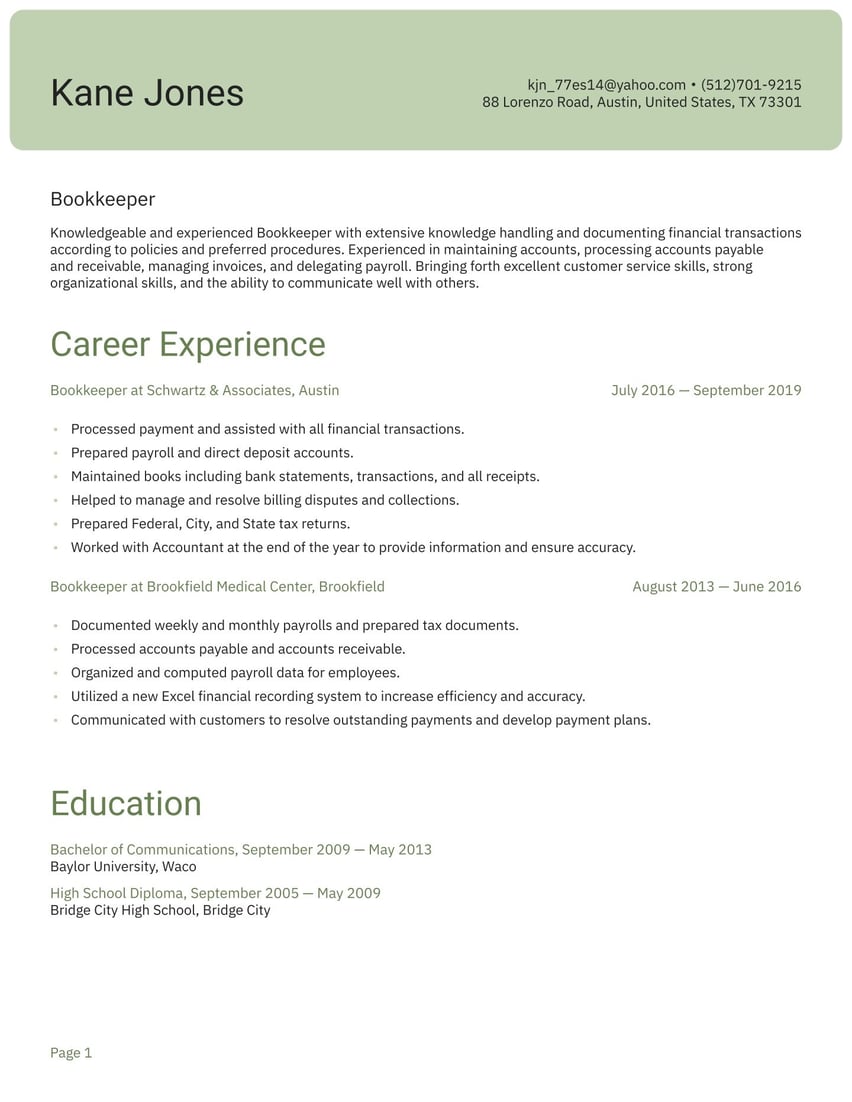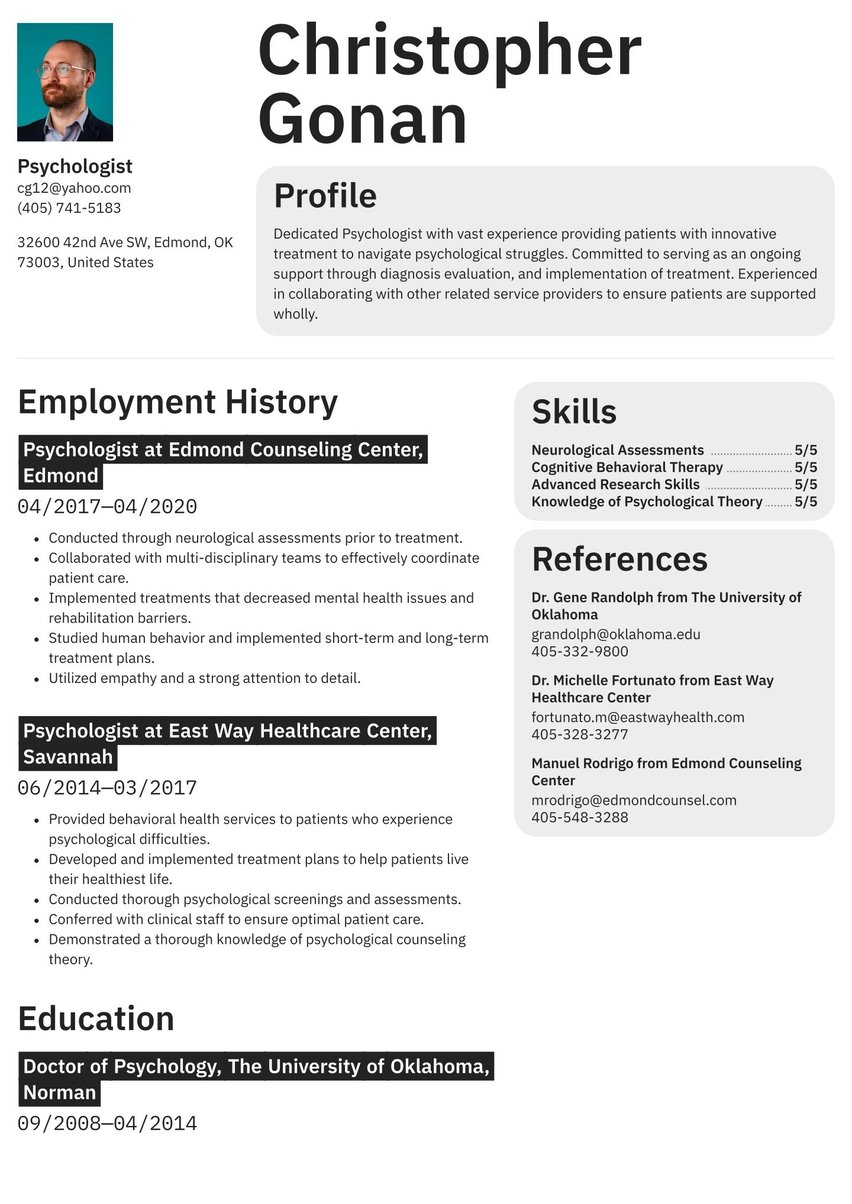Compassionate and experienced life coach with a proven track record of helping clients achieve personal and professional growth. Skilled in active listening, goal setting, and creating customized action plans. Adept at fostering a supportive environment that encourages self-reflection and positive change. Committed to empowering individuals to overcome obstacles and reach their full potential.
08/2018 - present, Life Coach, Empowered Living Coaching, Denver, CO
- Conduct one-on-one coaching sessions to help clients identify and achieve their goals
- Develop personalized action plans and provide ongoing support and accountability
- Facilitate group workshops on topics such as stress management, self-esteem, and career development
- Collaborate with a network of professionals to provide comprehensive support to clients
06/2016 - 07/2018, Career Coach, University of Colorado Denver Career Center, Denver, CO
- Provided career guidance and support to university students and alumni
- Conducted mock interviews and reviewed resumes to help clients prepare for job searches
- Facilitated career exploration workshops and networking events
- Collaborated with local employers to connect clients with job opportunities
Graduated: May 2016
Graduated: May 2014
- Active Listening and Empathy
- Goal Setting and Action Planning
- Motivational Interviewing Techniques
- Public Speaking
- Coaching Software and Tools
Your life coach resume is like a map of your professional journey, one that shows how you can plan a path for career success. And a compelling resume gets you to where you want to be faster, which is helping others realize their goals and ambitions to live their best life.
Life Coach resume examples by experience level
An uninspired resume isn’t going to motivate anyone to take on your services. If you can’t hype your own career, how will anyone be inspired to hire you to boost theirs?
But you can take the steps you need to realize your best resume, through visualization, intent, and action!
Your resume should answer the question “How can you help your client?” It should demonstrate that you have the experience to help them reach their personal and professional goals.
Resume guide for a life coach resume
Remove obstacles for success with Resume.io. With 500+ professions in our database, we have the guides and resume examples that are perfect for you, and our resume builder makes crafting a life-changing resume fast and easy.
This resume guide and corresponding life coach resume example will cover the following:
- How to write a life coach resume
- Choosing the right resume format for life coaching
- How to add your contact information
- Using summaries to express your unique value
- Adding your life coach experience
- Listing education and relevant experience
- Choosing the right resume design/layout
- What the life coach market looks like, and what salary you can expect
How to write a life coach resume
When you decide to make positive positive changes in your life, your first step is knowing what to include and what to leave out. To that end, your resume should contain the following elements:
- The resume header
- The resume summary (aka profile or personal statement)
- The employment history section
- The resume skills section
- The education section
A good resume will help you “sell yourself,” professionally speaking, and make it clear what value you bring to the table. You wouldn’t have the same plan for a person going through a life crisis as you would for someone simply switching careers, so each resume you submit should be targeted based on what they’re looking for.
Identify the client’s needs and use your resume to demonstrate why you’re the person who can help them accomplish their goals. That’s your USP, aka your unique selling proposition, which is the heart of your resume as well who you are as a life coach.
- Highlight accomplishments rather than listing your day-to-day tasks. Show the positive outcomes you’ve achieved with past clients. What do you do that is different that helps them achieve their goals?
- Tailor your resume for each client specifically. Adjust the “voice” you use to align with the client or company, just like you would adjust your strategy for each client you work with.
- Provide a professional, but “human,” touch with a resume template designed to be clean and streamlined, without being unapproachable or uninspiring.
- If you’ll be applying for jobs online, you’ll want to include appropriate keywords so your resume won’t be eliminated by ATS screening software. To increase your chances of getting a “green flag,” consider opting for an ATS resume template.
Optimize for the ATS
As you might already be aware, ATS stands for “Applicant Tracking Systems,” which is a computerized way of screening out unqualified applicants. ATS algorithms scan resumes for keywords – usually taken from the job description—and rank them by keyword inclusion. Only the highest-ranking resumes pass through to be reviewed by human hiring staff.
For example, let's say that a life coach job posting lists the following requirements:
- “Life coach”
- “One year of experience with teaching or coaching”
- “Bachelor’s degree in related field or equivalent work experience
- “responsible for ensuring each student they work with has the tools to gain the skills, knowledge, and confidence to lead a purpose-driven, well-designed life.”
- “Critical thinking skills”
Your resume profile summary, when integrating the keywords, could read:
“Thoughtful, motivated life coach with bachelor’s degree in adolescent psychology and 3 years of practical coaching experience, assisting students with life skills, and utilizing creative tools to help them achieve confidence and purpose. Proven experience in student learning outcomes and critical thinking skills.”
Choosing the right resume format for life coaching
Your resume needs to be professional, easy to understand, and persuasive, which are some of the qualities a good life coach should possess.
The best resume format for most life coach positions is reverse chronological. This format puts the spotlight on your employment history section, listed in reverse chronological order to tell the story of your career from its beginning to the current day. Below is an example of this format.
Those looking to start a career as a life coach (such as a career changer or new graduate) may have better results with other formats, such as the functional format, which focuses more on the transferable skills you’ve developed and less on your past employment.
There are a multitude of resume templates in our resume builder, so you’re sure to find the best one to fit your current career situation. And if you’re unsure, we have a variety of versions of the three formats available as resume examples so you can choose the right one for you.
Include your contact information
You could be the best life coach in the world, but if your potential client can’t get in touch with you, you’ll spend a lot of time “waiting by the phone” and watching career success pass you by. Fortunately, a resume has a special place for this information: the header.
An effective header meets two qualifications: it is easily located, and professionally-presented.
- Full name & title. List your first and last name, then your job title, “Life Coach.”
- Professional email address. Use a simple address like [email protected]. Try not to use your personal address, especially if it has a “creative” or unprofessional format.
- Phone number. List a number where you can be readily contacted, with a professional , personalized voicemail greeting.
- Location. List only your city and state. Your street address is unnecessary, and may be a security hazard, especially if you are female. If you’re willing to relocate, make note of this here.
- LinkedIn. If your LinkedIn profile is active and up-to-date, include it as well. This is particularly helpful if you’ve published any professional articles.
- Website. If you have a professional website, include the link. This will help supplement your resume with success stories, testimonials, and examples.
Don’t include:
- Date of birth: It’s irrelevant, and might subject you to age discrimination.
- Personal details: Marital status, social security number, passport number, etc.
- Photo headshot: If you’re a job-seeker in the U.S., avoid including a photo. It can open you up to all types of potential illegal discrimination, unfortunately.
Make use of a summary
A good life coach doesn’t make pie-n-the-sky promises; they work with you to create a clear, actionable plan to reach your goals. When you sit down with a new client, you let them know why you’re the person who should work with them on their personal or professional journey.
For a potential client, your resume summary performs the same basic function. In no more than 2-3 sentences, you’re putting yourself forward as the best life coach to address their obstacles effectively. Shine a spotlight on your training, specific skills, and personal qualities that make you unique.
A good summary should be inspiring. Use action verbs—guide, coach, empower, facilitate, inspire, and motivate—and include quantifiable results where it makes sense to do so.
A resume summary isn’t just a recap of information on your resume. Good summaries offer converging, long-encompassing talents and skills that make you a credit to your profession. For example, “Adept at fostering a supportive environment that encourages self-reflection and positive change.”
Need inspiration for your summary? Check out our related resumes:
You can find adaptable life coach resume examples summary below:
Diligent, motivated life coach with experience in teaching and consulting positions. Highly educated and well trained with expertise in dealing with educational, professional, and personal issues. Resourceful and focused professional with strong leadership, communication, and organizational skills.
Compassionate and experienced life coach with a proven track record of helping clients achieve personal and professional growth. Skilled in active listening, goal setting, and creating customized action plans. Adept at fostering a supportive environment that encourages self-reflection and positive change. Committed to empowering individuals to overcome obstacles and reach their full potential.
Ambitious, driven, and award-winning professional with a doctorate in educational psychology and extensive experience identifying client needs and requirements, developing personal performance improvement strategies, and implementing solutions and procedures to support personal success. Proven ability to create, develop, and implement effective and personalized coaching programs. Unparalleled collaboration, communication and leadership skills.
Outline your life coach work experience: a path to success
For most life coach resumes, you’ll list your current (or most recent) job at the top of this section and work your way back to your first job. Don’t go back any farther than the last 10-15 years to keep your experience section relevant and avoid the possibility of age discrimination.
Include experience that is relevant to the position you’re seeking; other, older positions can be listed separately under a subheader titled, “Other experience.”
Don’t just list what you did with each client, show concrete, quantifiable results. Ineffective descriptions might include:
- "Worked with clients in an office setting."
- "Helped write client goals."
- "Had an significant track record of helping people."
These statements are ambiguous and could be applied to anyone purporting to be a life coach. They don’t communicate what makes you unique and the value you bring to a company and/or client.
Instead of these vagaries, use results-based points. Emphasize outcomes that you facilitated: addressing stress and anxiety, achieving career goals or productivity, improvements to physical health or relationships.
Check out these reworked versions of the phrases above:
- "Helped over 40 clients set realistic goals and create realistic, attainable action plans to achieve them."
- “Taught corporate workshops and seminars to provide demonstrations of activities for clients, resulting in a 20% increase in attendance.”
- "Created tailored, one-on-one coaching programs for clients, resulting in a 40% increase in overall client satisfaction and a 30% improvement in reaching goals.”
Take a look at the life coach employment history resume sample below:
Life Coach at Empowered Living Coaching, Denver, CO
August 2018 - Present
- Conduct one-on-one coaching sessions to help clients identify and achieve their goals
- Develop personalized action plans and provide ongoing support and accountability
- Facilitate group workshops on topics such as stress management, self-esteem, and career development
- Collaborate with a network of professionals to provide comprehensive support to clients
Career Coach at University of Colorado Denver Career Center, Denver, CO
June 2016 - July 2018
- Provided career guidance and support to university students and alumni
- Conducted mock interviews and reviewed resumes to help clients prepare for job searches
- Facilitated career exploration workshops and networking events
- Collaborated with local employers to connect clients with job opportunities
Include the relevant key skills that make you a life coach
It takes a particular type of person with a set of finely-honed skills to be an effective life coach who gets results. In your list of skills, incorporate hard and soft skills that highlight your hard-earned talent and expertise. Soft skills like active listening, empathy, communication skills, and time management are vital for success as a life coach.
But don’t discount the importance of hard skills on a life coach resume, like coaching software, business administration skills, research, public speaking, conflict management, and presentation software, which can give you a competitive edge.
The resume builder offers several pre-written key skills to choose from with proficiency ranges you can set. You can also write in your skills.
Here’s what the skills box looks like in our life coach resume template.
- Active Listening and Empathy
- Goal Setting and Action Planning
- Motivational Interviewing Techniques
- Public Speaking
- Coaching Software and Tools
Don’t limit yourself to the skills section; your skills should be incorporated into every section of your resume by showing how you used these skills on the job, including outcomes and achievements.
For example, in your work experience section and professional summary, highlight your
- Interpersonal skills by providing examples of conflict resolution with positive outcomes
- Leadership skills by describing your role in a sales team, mentioning team size and team accomplishments
- Active listening skills by demonstrating how you helped a client understand their obstacles
If you’re not sure of the best skills to include, reference the job description, which will let you know specifically what skills that employer is looking for.
Life coaches get real results
Life coaching isn’t just being a cheerleader; they inspire real change in people’s lives.
- 25%-40% of all Fortune 500 companies include executive coaching in their training programs
- In an International Coaching Federation (ICF) study, 72 percent of participants said they significantly improved their communication skills after working with a life coach.
- 90 percent of life coaches surveyed by the International Coaching Federation have an active client list.
Detail your education & relevant life coaching certifications
The education section is important for life coaches, since potential employers want to make sure that you know what you’re talking about! List your academic achievements in reverse chronological order. If you have college degrees, don’t include your high school information, as it's unnecessary.
If you have education beyond a college setting, you can include them in this section to show your commitment to professional growth.
- Training and certifications. List any certifications, courses, or workshops that support your life coaching skills.
- Internships. There usually aren’t internships for life coaching specifically, but training in areas such as counseling, psychology, social work, or teaching can help add to your value as a life coach.
- Professional development. Memberships in professional organizations, like the International Coaching Federation, show that you’re committed to learning new skills and knowledge as a life coach.
Remember, if your education or training is more relevant than your work experience (if you're a career changer, for example), consider placing this section before your employment history. This is known as a functional resume that emphasizes your qualifications and transferable skills.
Master's Degree in Counseling Psychology, University of Denver, Denver, CO
- Graduated: May 2016
Bachelor's Degree in Psychology, University of Colorado Boulder, Boulder, CO
- Graduated: May 2014
Pick the right resume layout and design for a life coach resume
As a life coach, you’ve no doubt done a personal inventory of your best skills, talents, and personal attributes, and you want to make sure that they shine in every professional encounter you have.
This care and attention should be paid to your resume as well. You want your resume to grab the client’s attention and show them what makes you special.
While life coaching is a very creative, personable career, when it comes to choosing a design, a life coach resume should have a clean, modern layout that is easy for a potential client or employer to read and understand.
We recommend simple lines for separating sections, a modern font and no or limited color. Your resume should value substance over flash. The life coach resume sample here, for example, makes use of our Milan template: a sleek and clean layout with some color.
Crafting a great life coach resume doesn’t have to take over your life. Resume templates take care of the most tedious formatting and structure tasks, allowing you to focus on the content.
Life coach text-only resume example
Profile
Compassionate and experienced life coach with a proven track record of helping clients achieve personal and professional growth. Skilled in active listening, goal setting, and creating customized action plans. Adept at fostering a supportive environment that encourages self-reflection and positive change. Committed to empowering individuals to overcome obstacles and reach their full potential.
Employment history
Life Coach at Empowered Living Coaching, Denver, CO
August 2018 - Present
- Conduct one-on-one coaching sessions to help clients identify and achieve their goals
- Develop personalized action plans and provide ongoing support and accountability
- Facilitate group workshops on topics such as stress management, self-esteem, and career development
- Collaborate with a network of professionals to provide comprehensive support to clients
Career Coach at University of Colorado Denver Career Center, Denver, CO
June 2016 - July 2018
- Provided career guidance and support to university students and alumni
- Conducted mock interviews and reviewed resumes to help clients prepare for job searches
- Facilitated career exploration workshops and networking events
- Collaborated with local employers to connect clients with job opportunities
Skills
- Active Listening and Empathy
- Goal Setting and Action Planning
- Motivational Interviewing Techniques
- Public Speaking
- Coaching Software and Tools
Education
Master's Degree in Counseling Psychology, University of Denver, Denver, CO
- Graduated: May 2016
Bachelor's Degree in Psychology, University of Colorado Boulder, Boulder, CO
- Graduated: May 2014
Life coach job market and outlook
Life coaches are more in-demand than ever, and are utilized in business, education, and individuals. As opposed to therapists, life coaches don’t diagnose or treat mental health issues; they are more forward-focused, helping clients overcome obstacles and develop a strategic, actionable plan to their individualized goals.
What type of salary you can expect in life coaching
The salary for a life coach can be hard to determine, due to a wide range of salaries listed by a variety of sources. The International Coaching Federation, deemed by many to be the top resource, determines that the average annual salary for a life coach is approximately $67,800.
Salaries for similar roles
- Rehabilitation counselors $44,040
- Career coach $140,000
- Health and wellness coach $68,500
- Personal development coach $60,790
- Academic coach $41,865
Key takeaways for building a life coach resume
A career in life coaching can be fulfilling for those who have empathy, good communication skills, and can motivate others to make positive life changes. They must also be effective at goal setting, active listening skills, and be able to find individual approaches that provide results for each client.
Start your job search with a resume builder, but why stop there? With Resume.io’s 18 powerful tools, you can search for jobs, track your journey, prepare for interviews, and negotiate salaries—all with our all-inclusive career toolkit at your fingertips.


.jpg)

.jpg)









